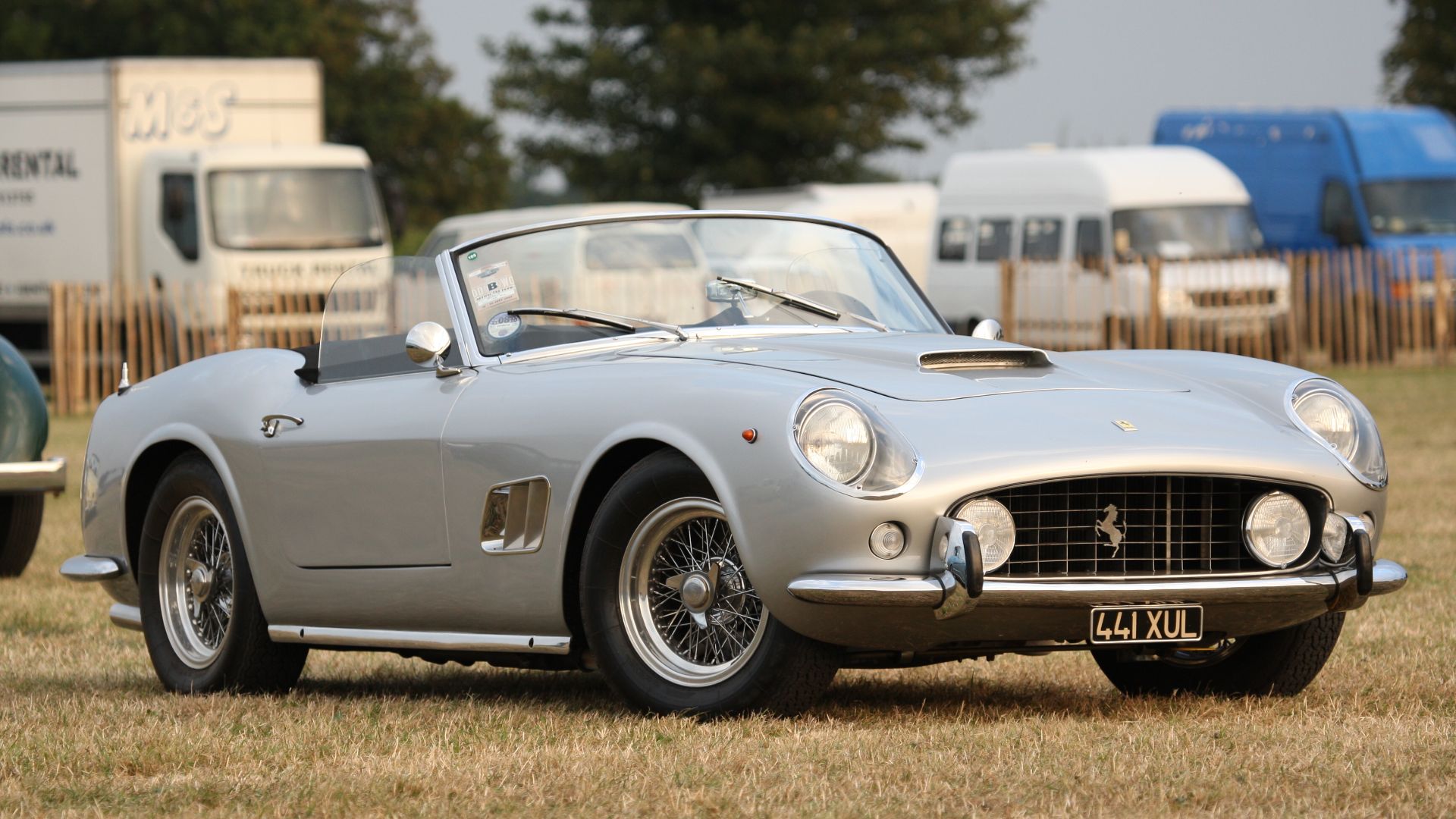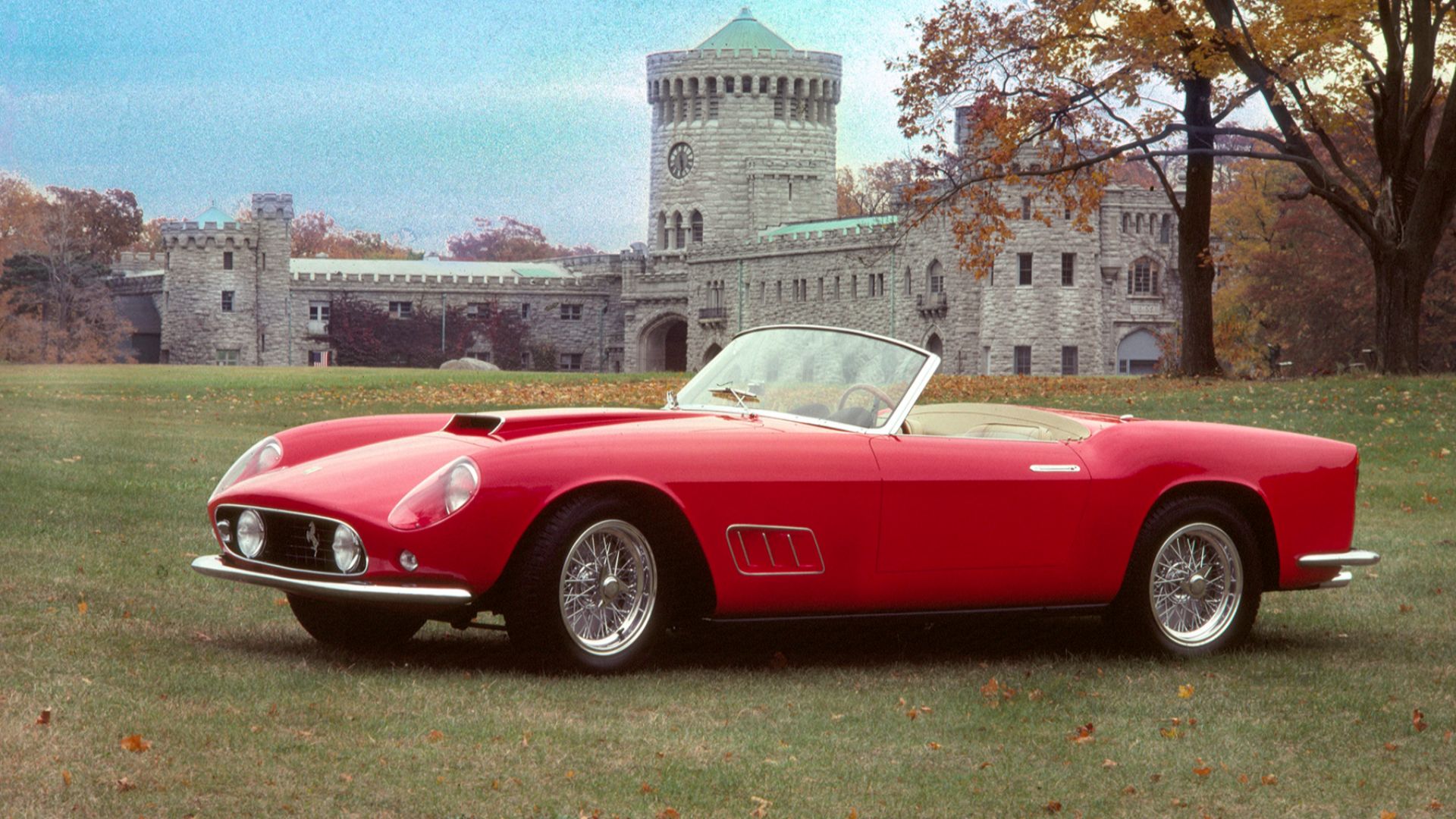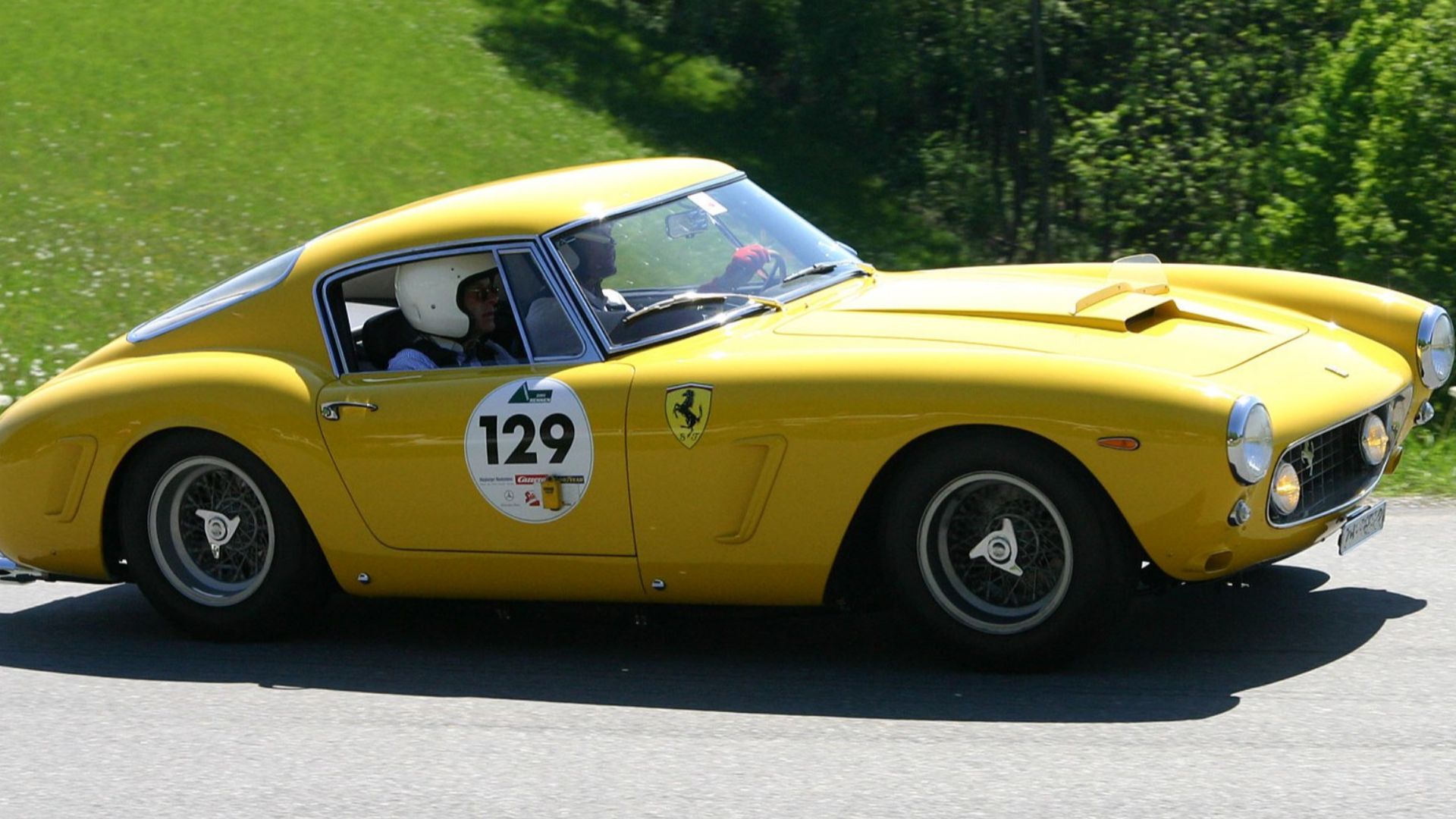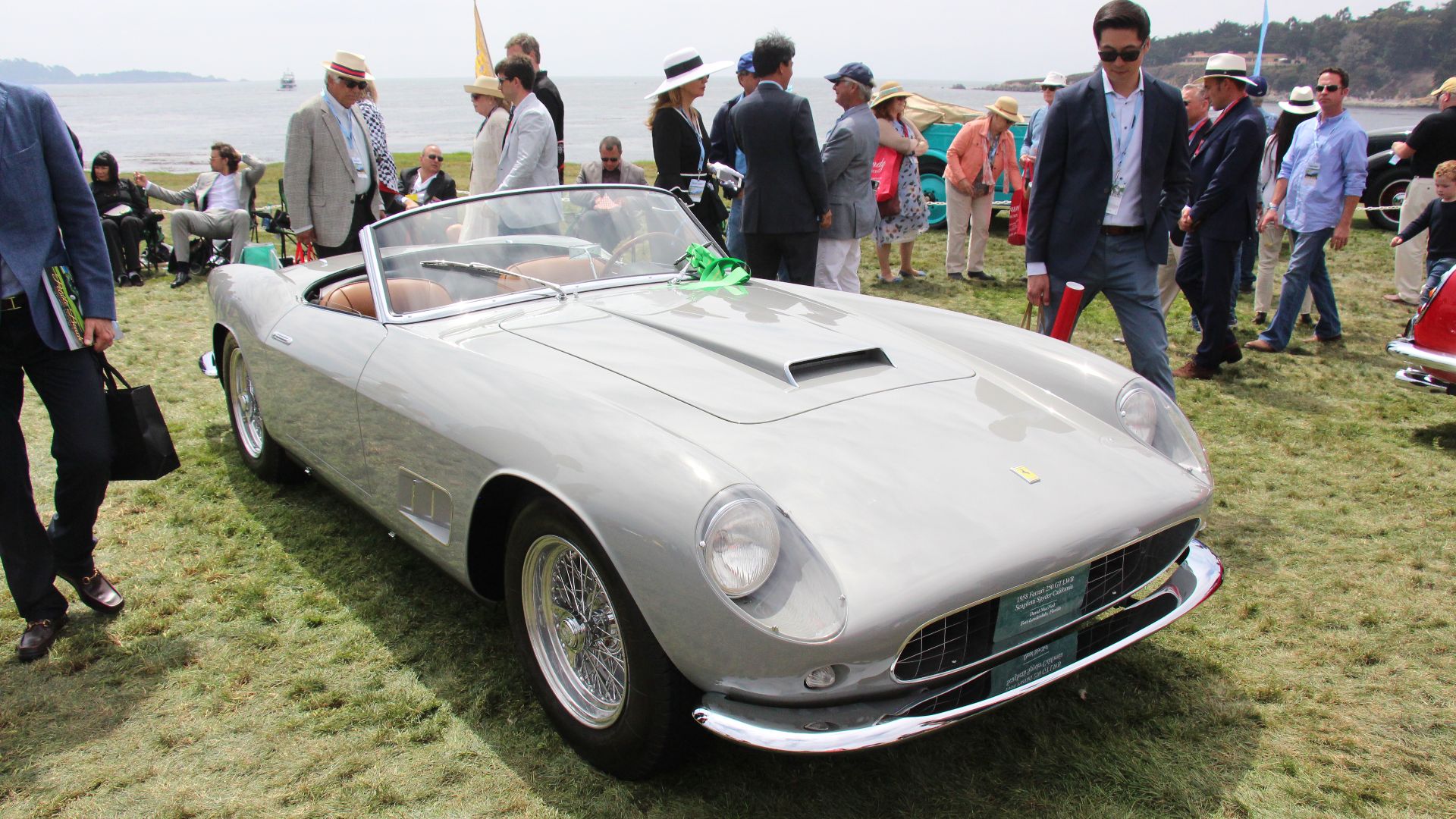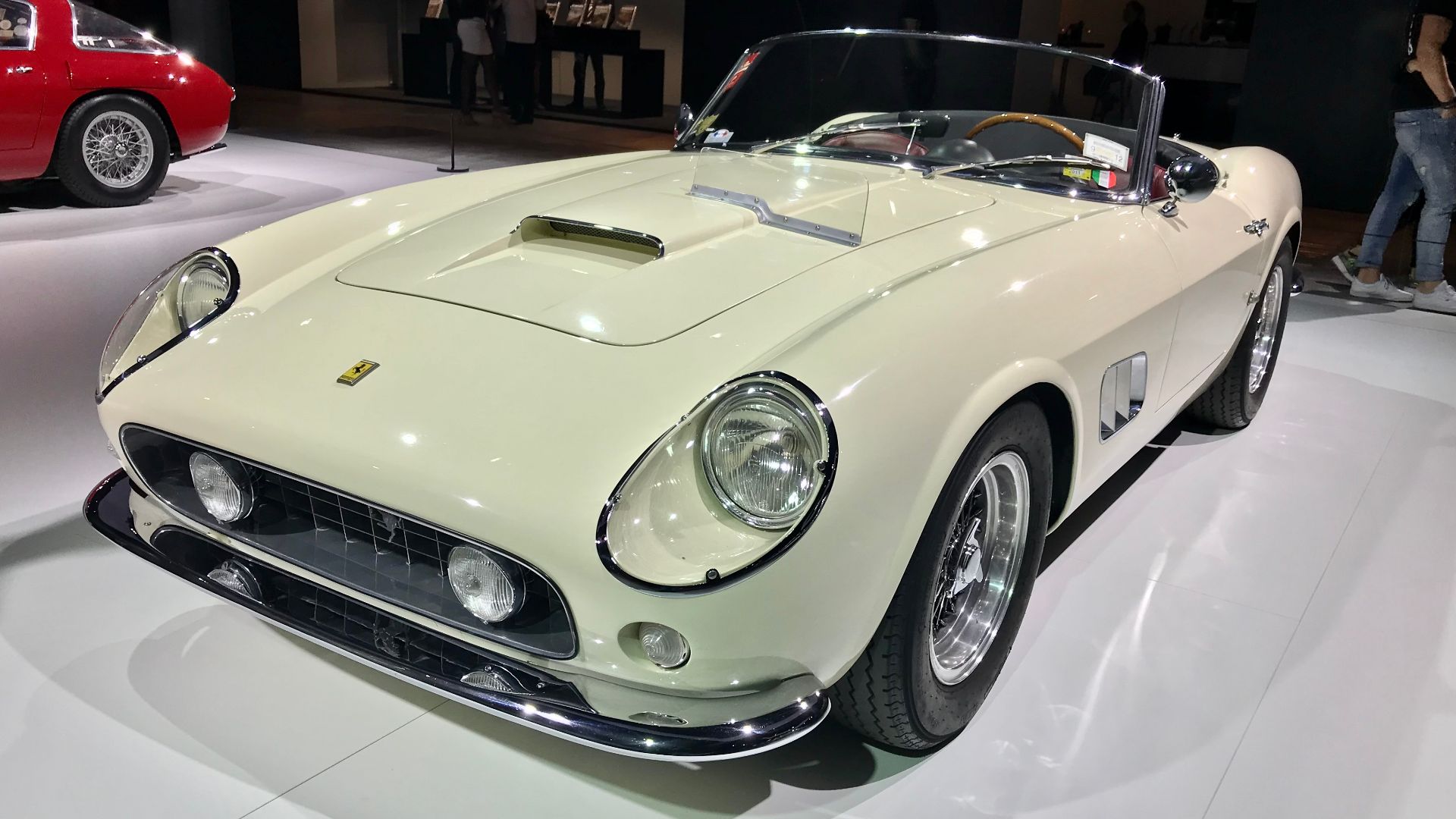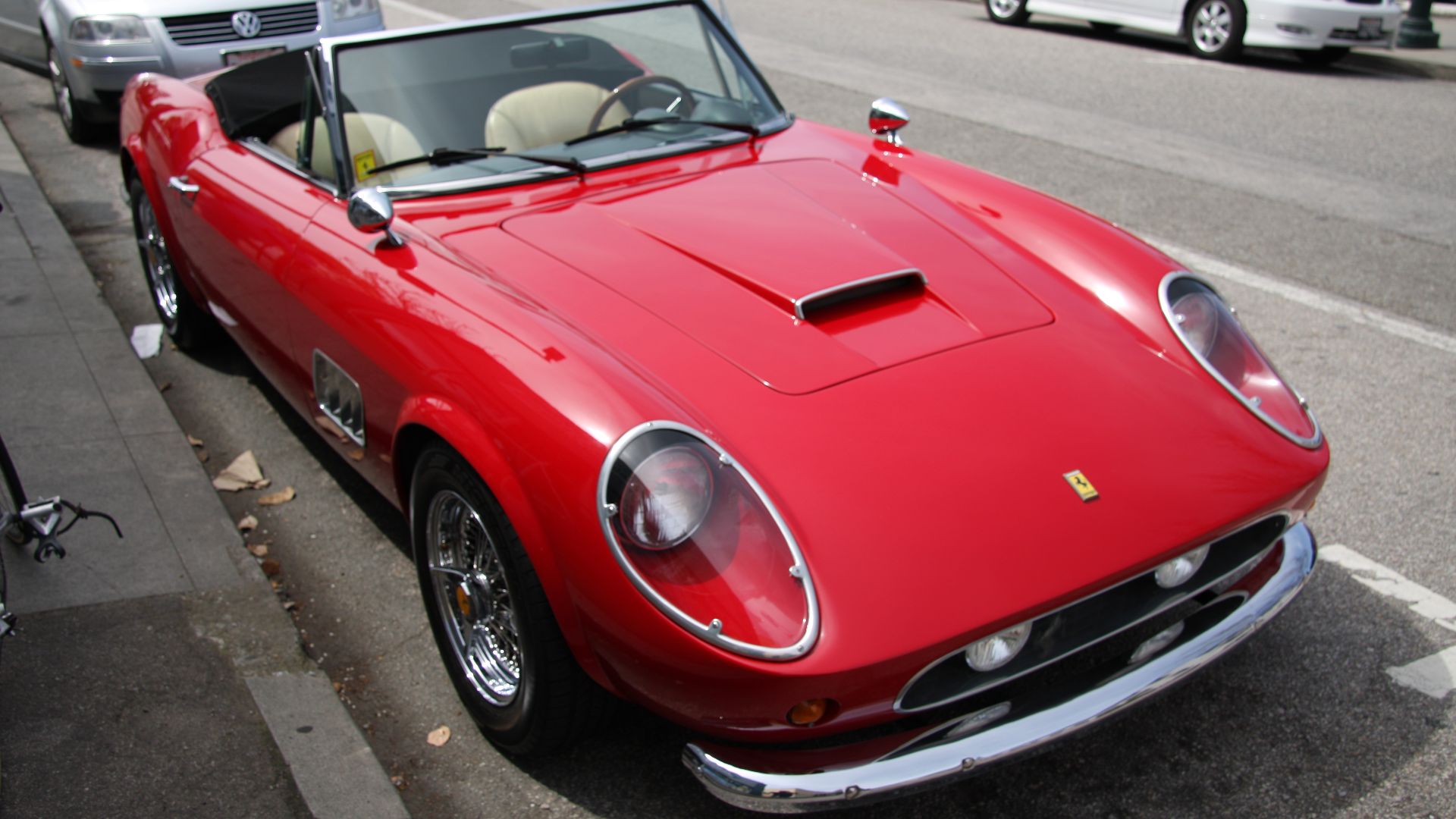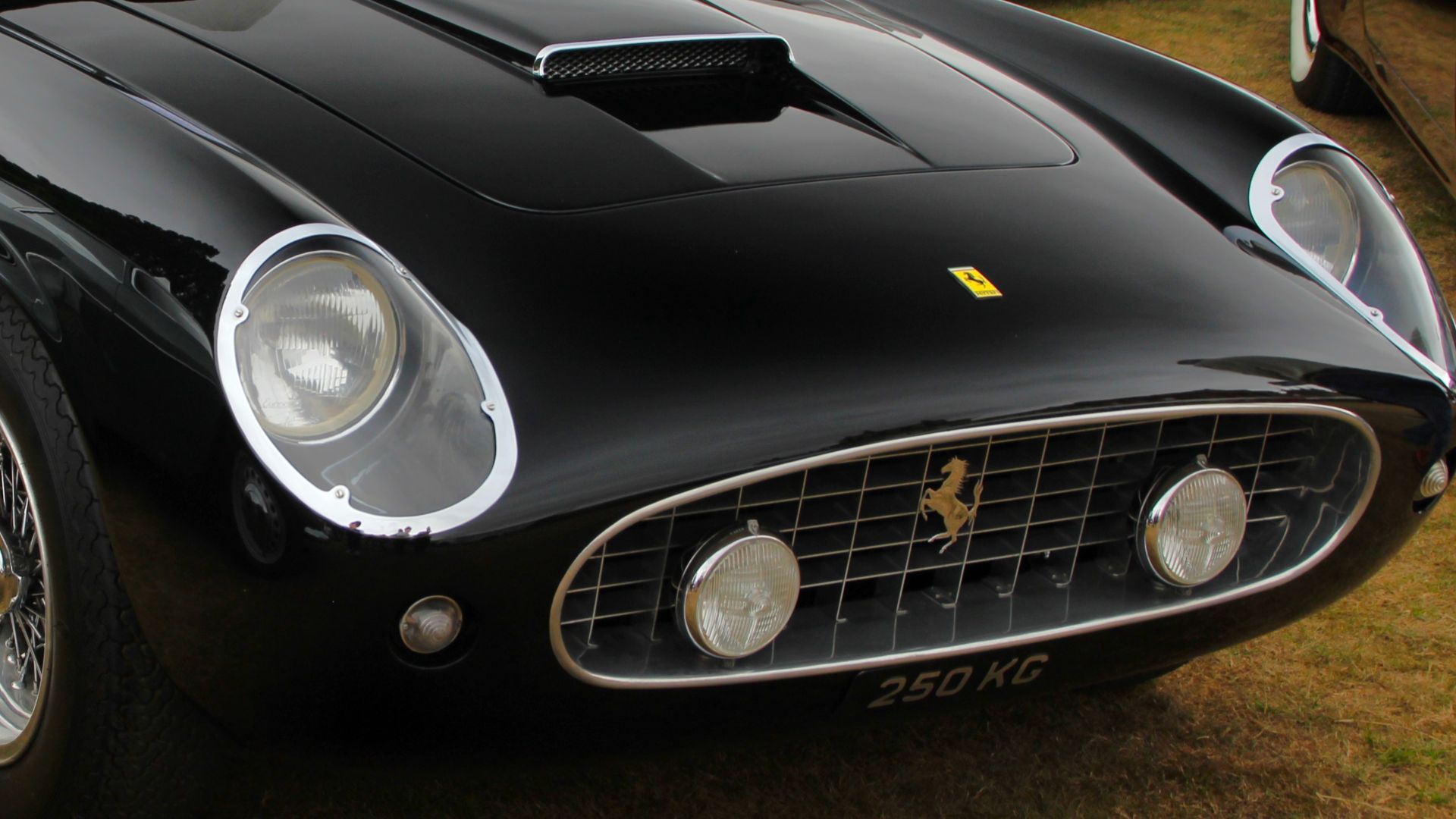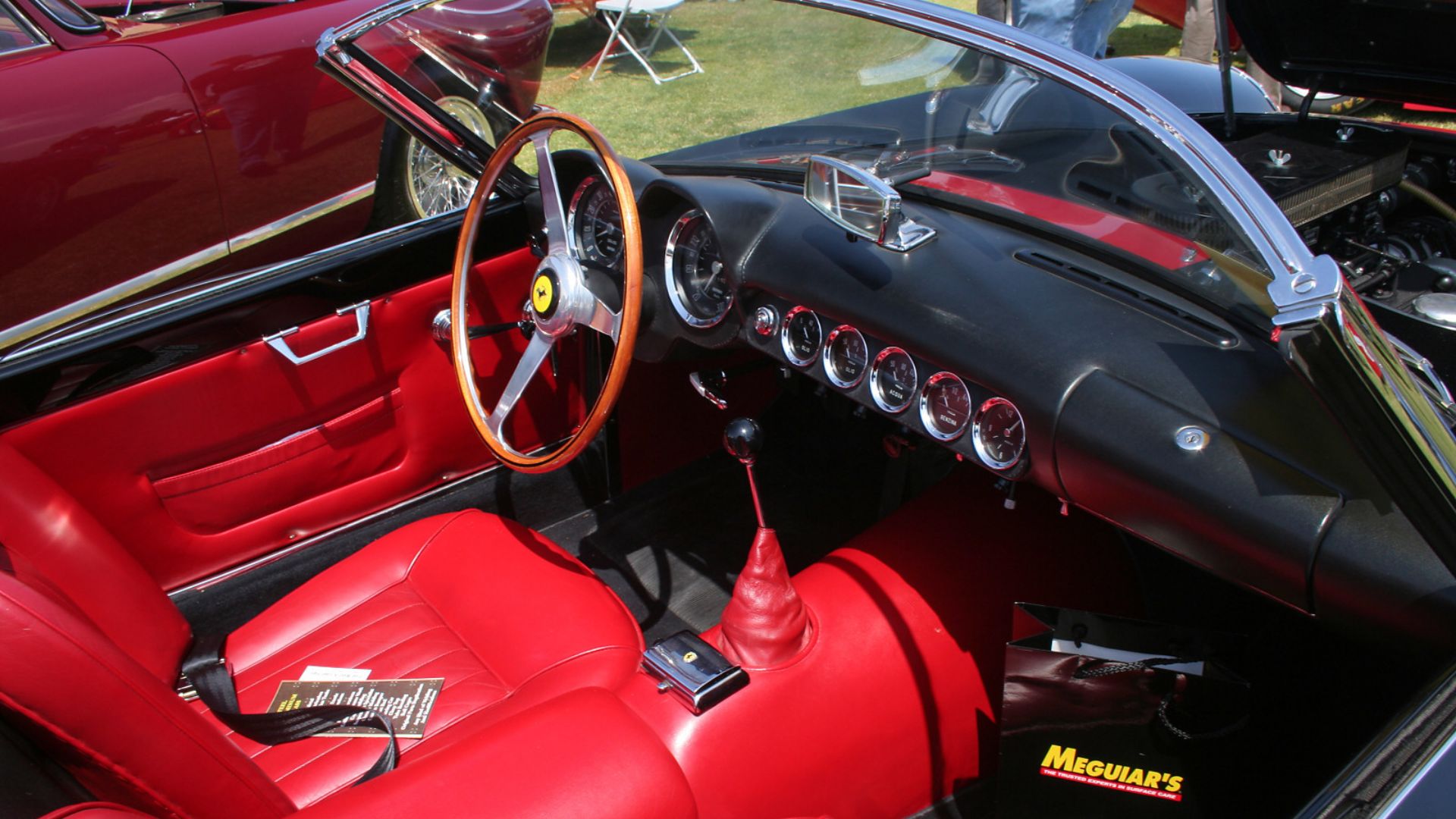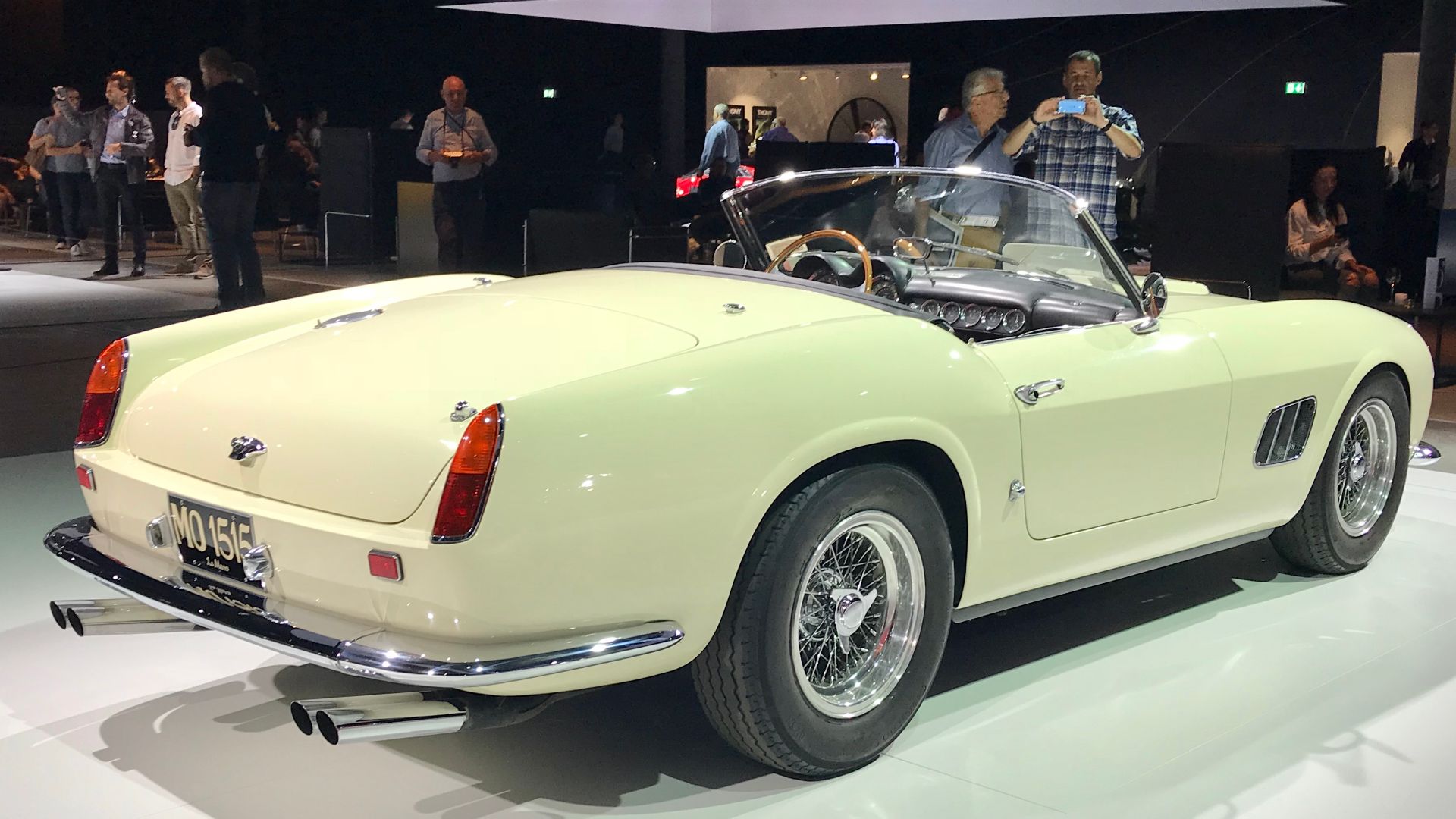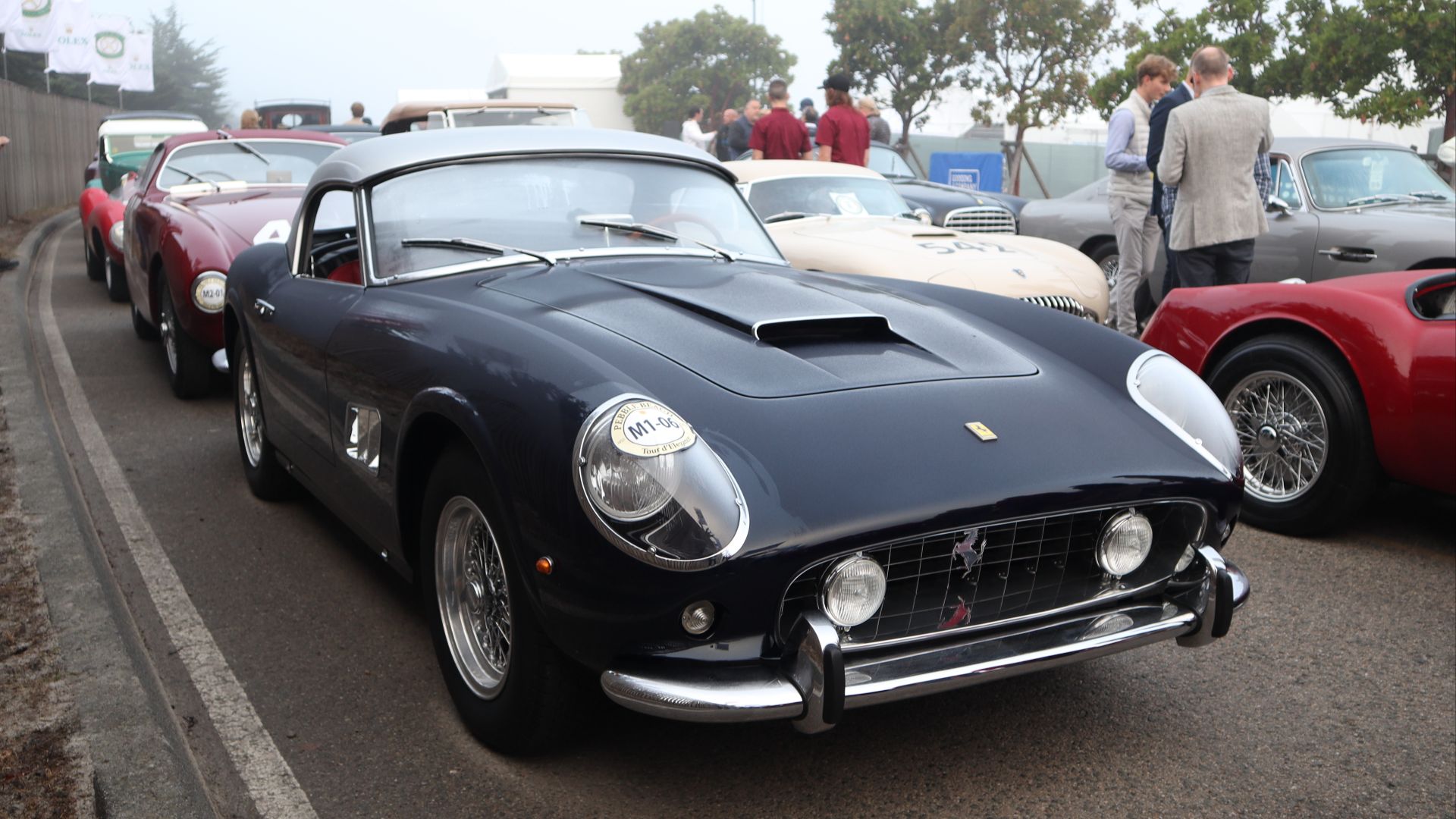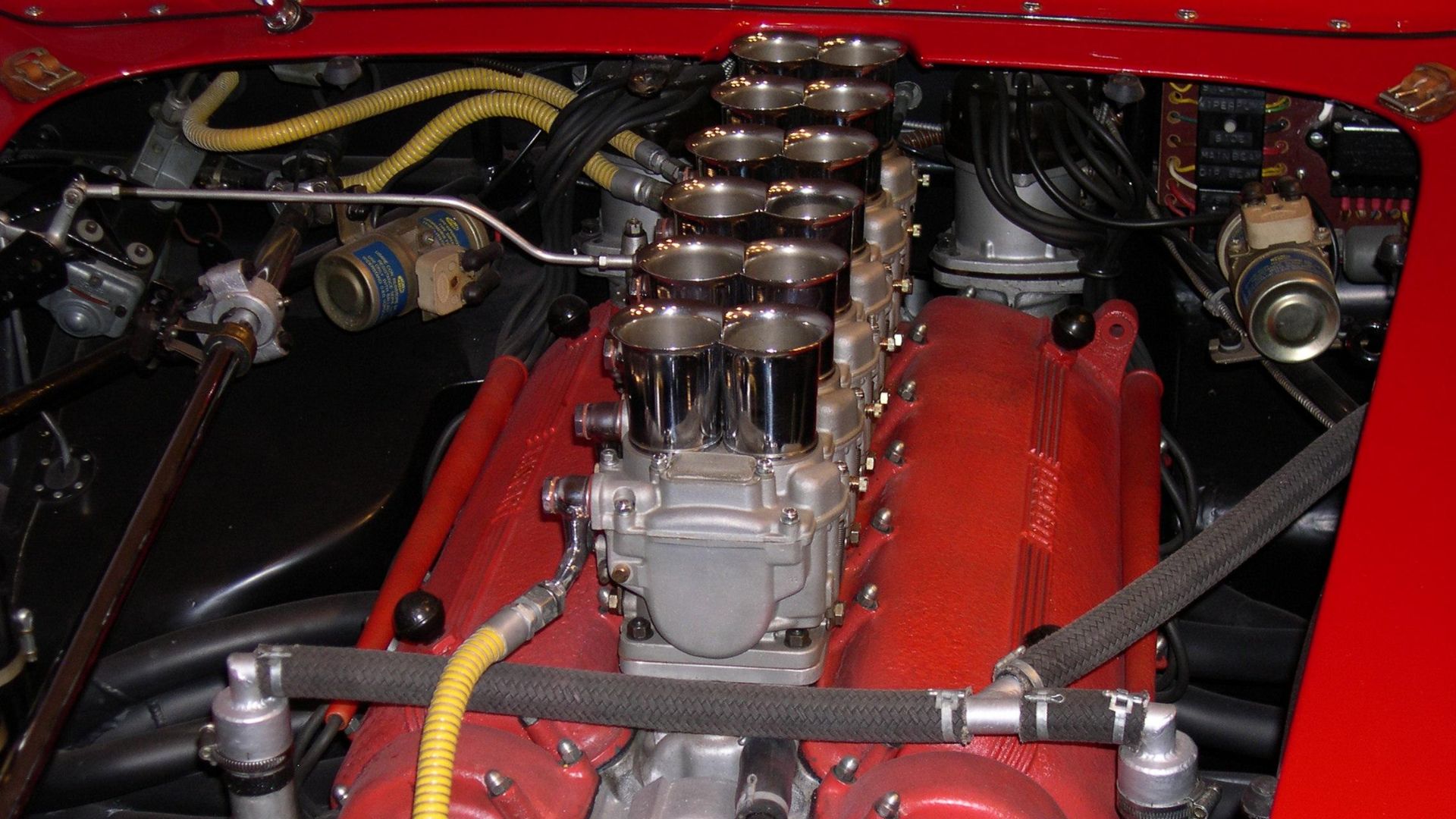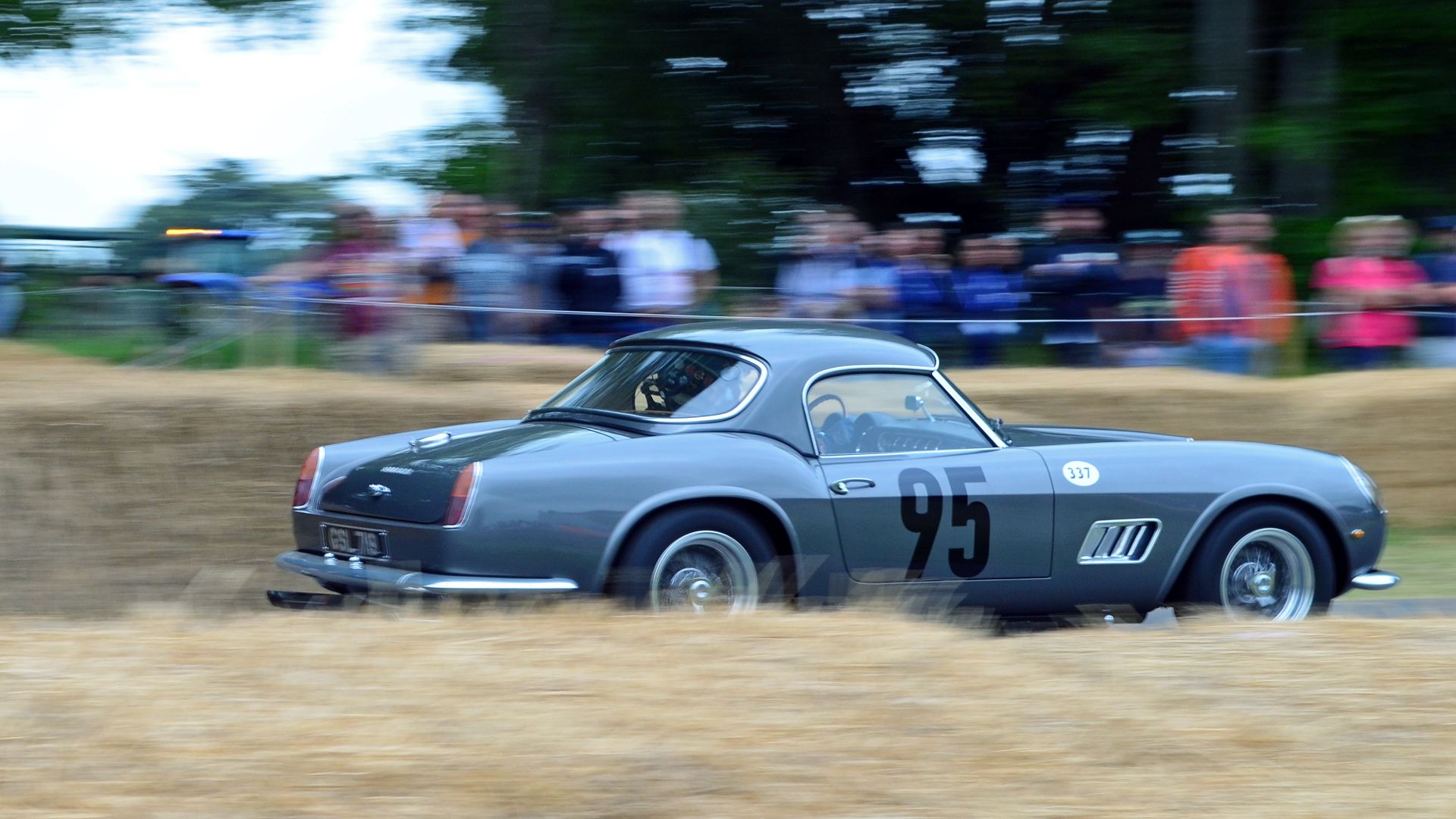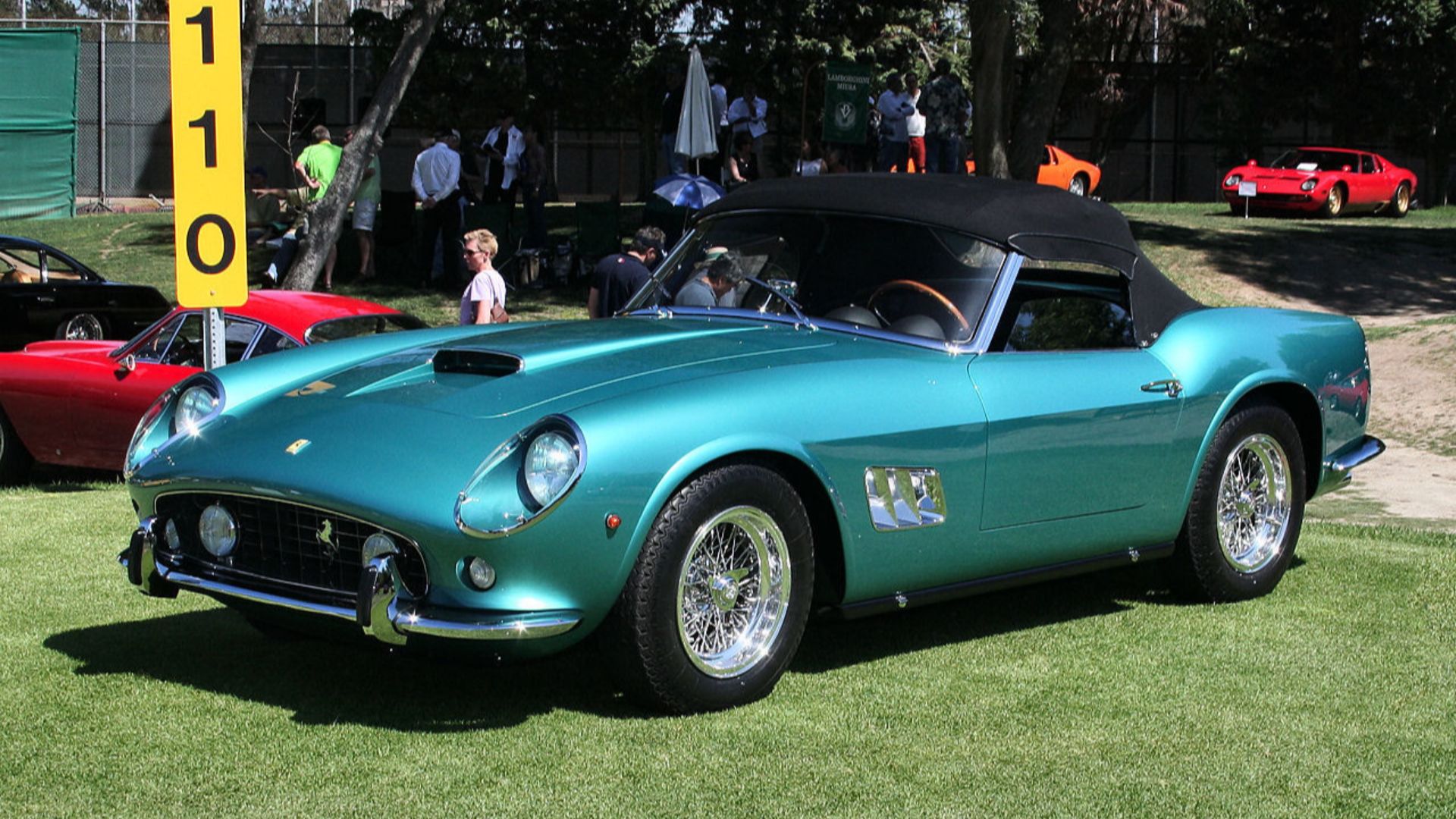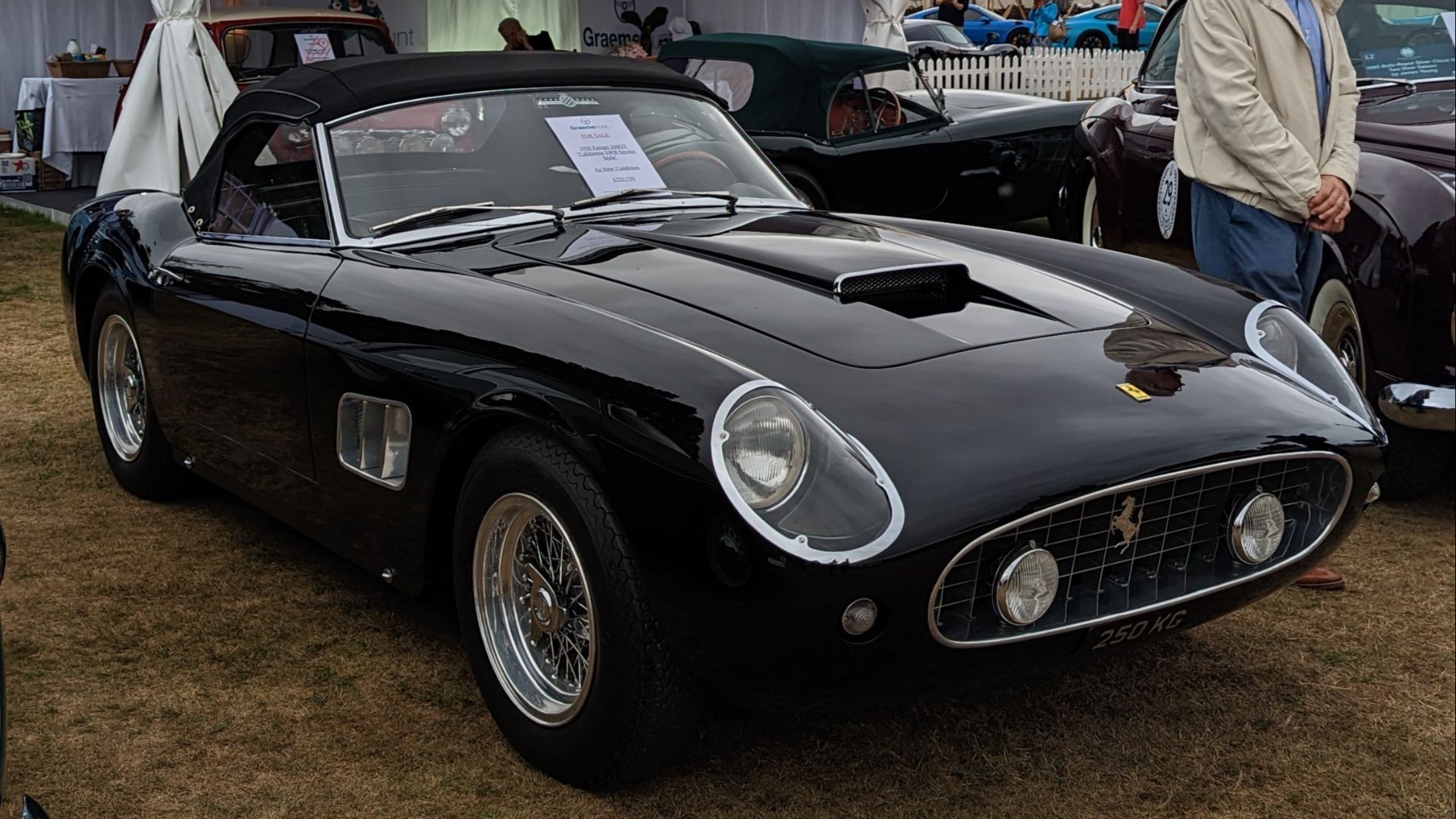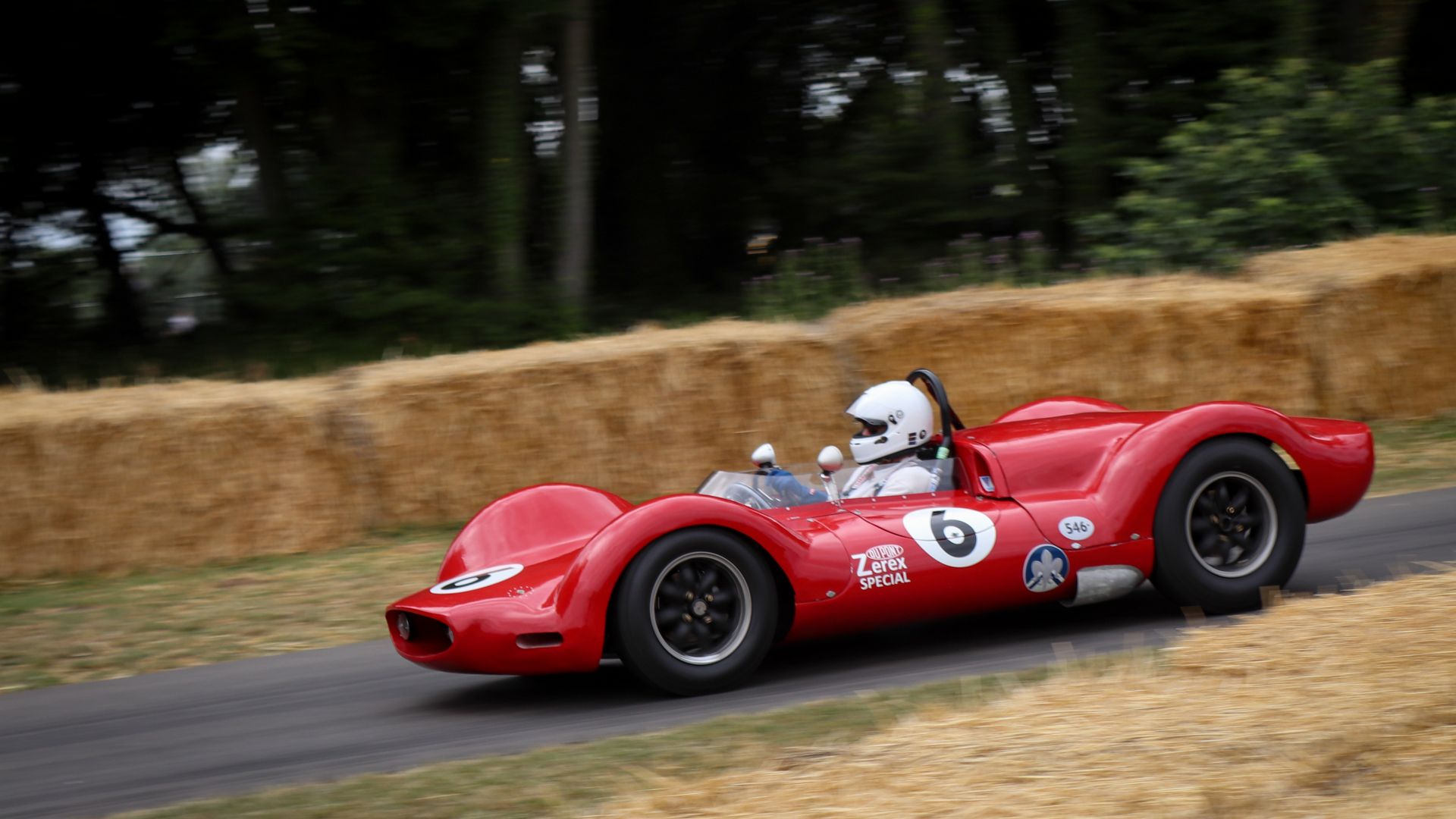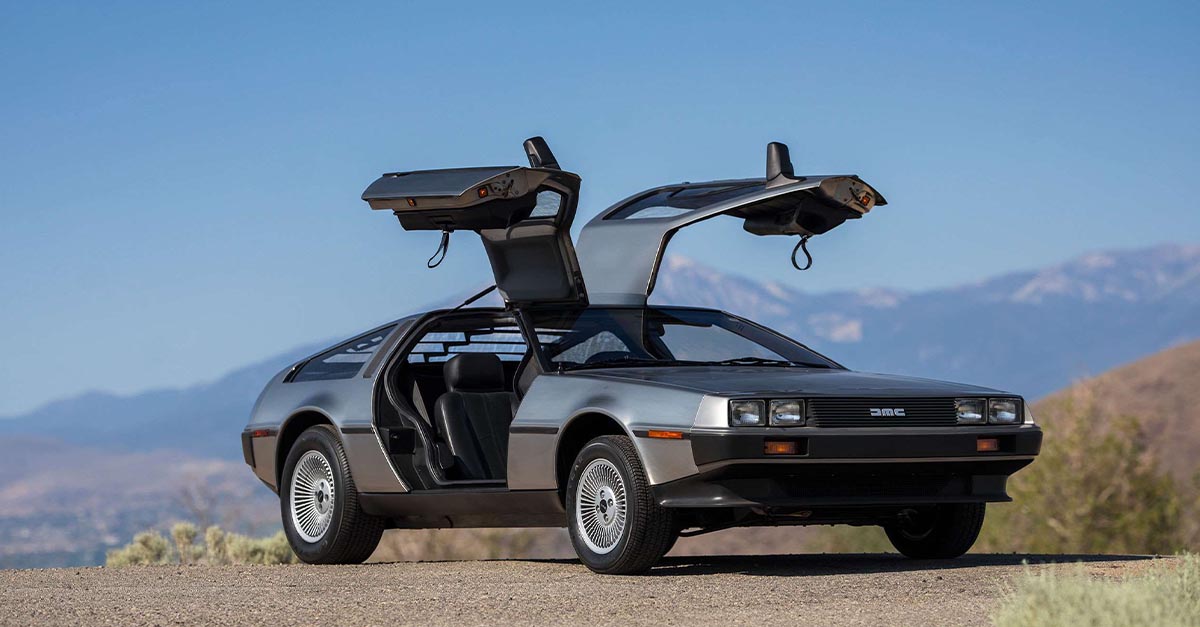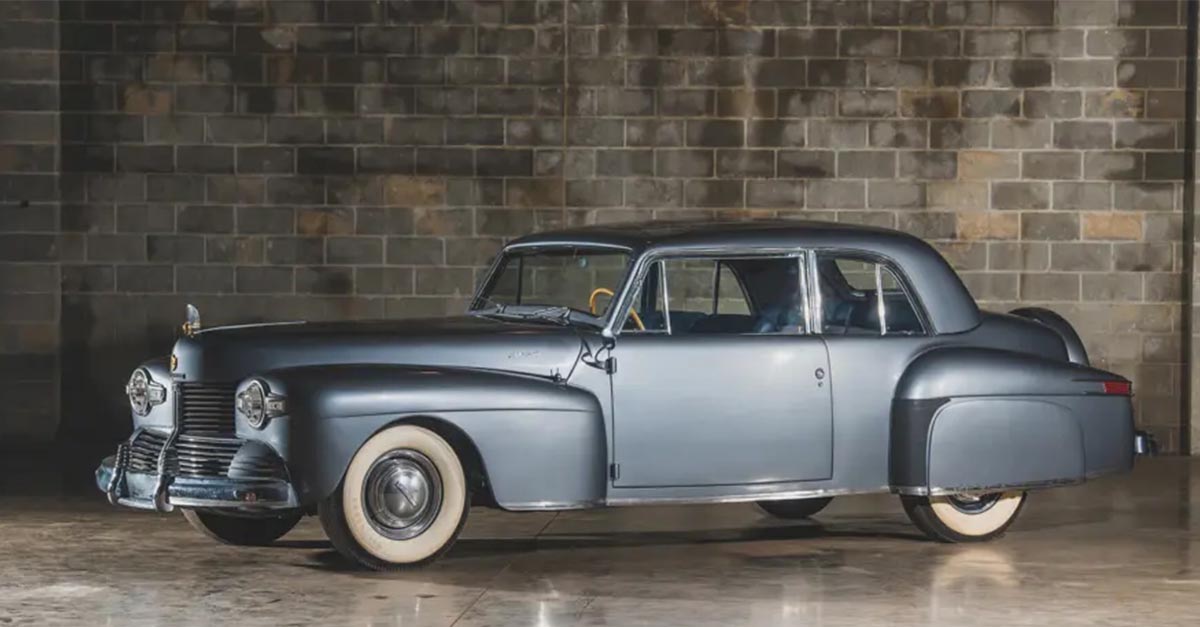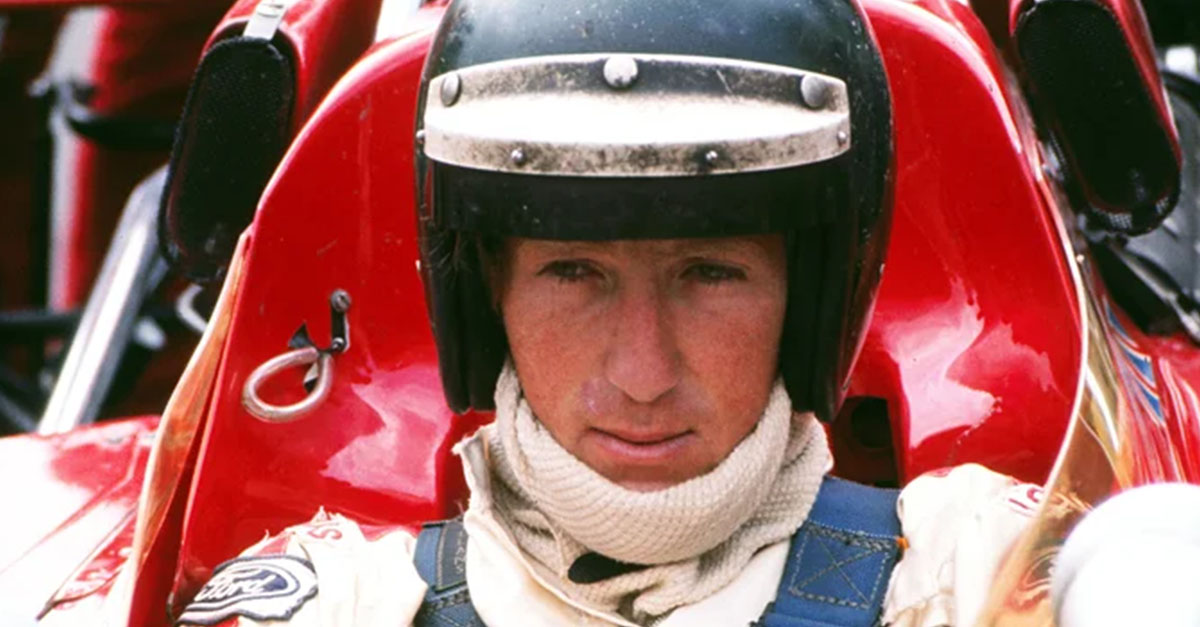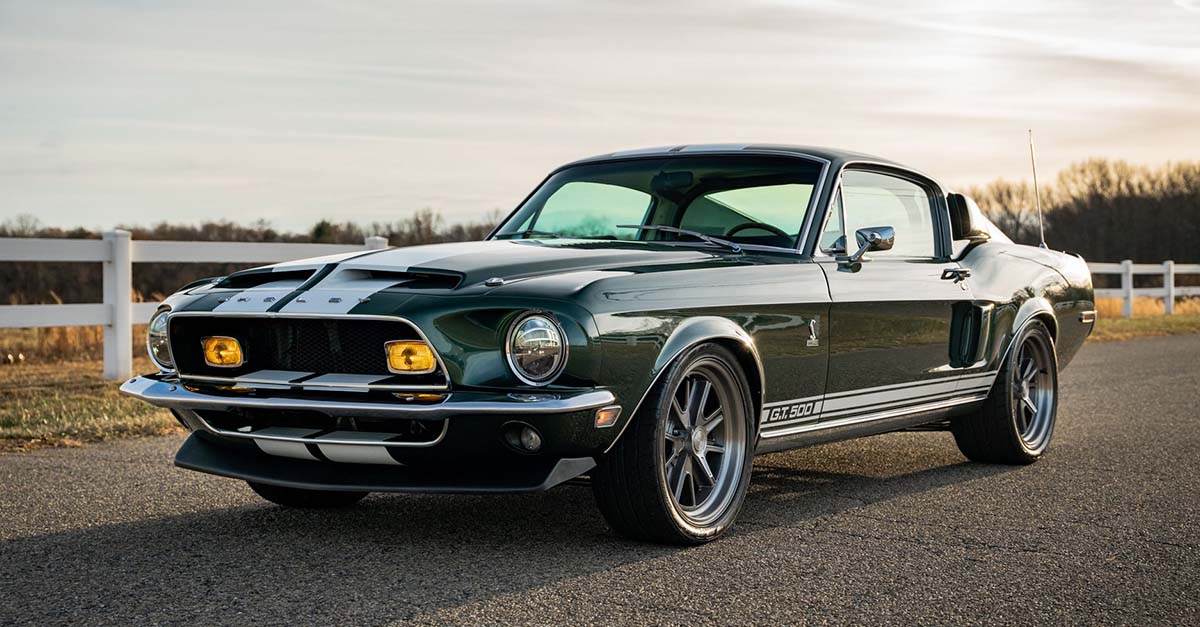An Automotive Cultural Icon
Few cars make hearts race quite like the Ferrari 250 GT California Spyder. It went through the toughest times in Ferris Bueller’s Day Off (spoiler: It was a replica) and continues to be admired today. So, where did it all start?
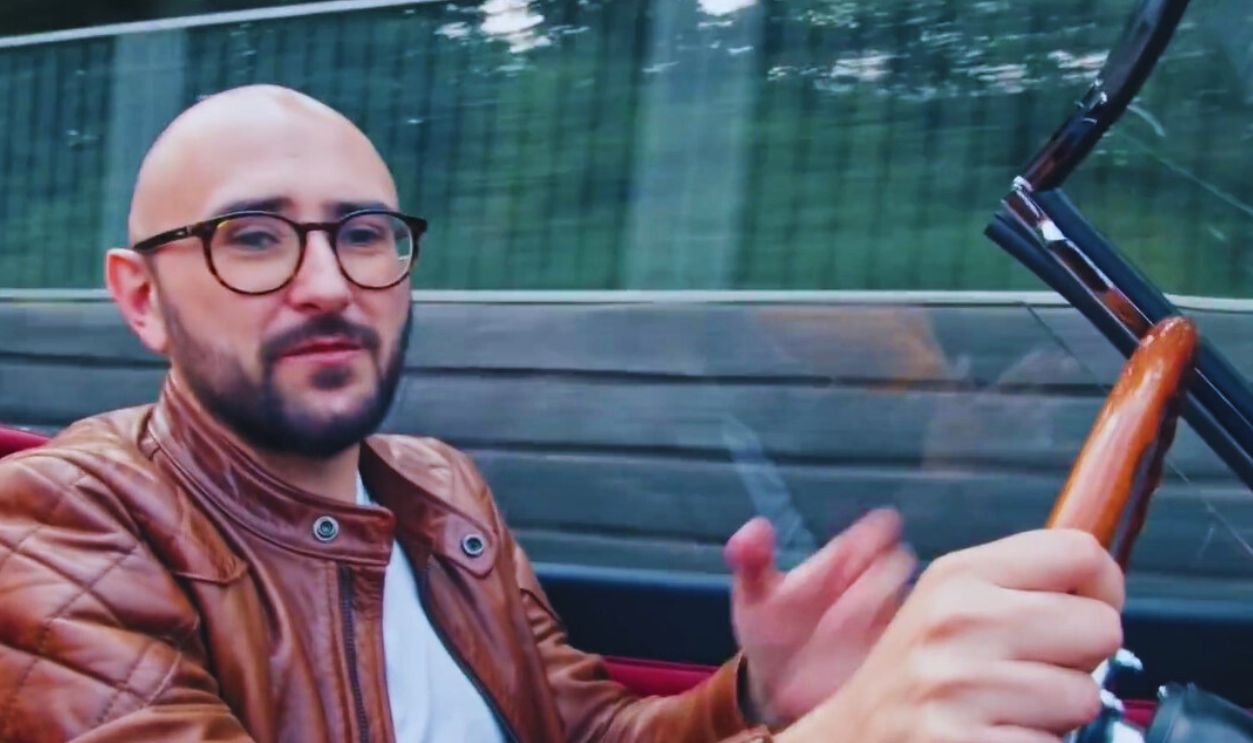
Simply, The Ferrari 250 California
The Ferrari 250 GT California Spyder model is a sports car created by the Italian car manufacturer Ferrari. The brand refers to it as the Ferrari 250 Gran Turismo Spyder California or simply the Ferrari 250 California.
It Was Built For America’s Growing Passion For European Sports Cars
The rising American interest in European auto racing and the demand for smaller sports cars led to a sharp increase in sales for European sports car makers in the US. This trend encouraged Ferrari and other European manufacturers to design models specifically for the American market.
American Demand Inspired This Convertible
The popularity of convertible sports cars, particularly in California, sparked interest from American dealers like Jon von Neumann and Luigi Chinetti, who pushed Ferrari to create a sporty convertible tailored for American buyers.
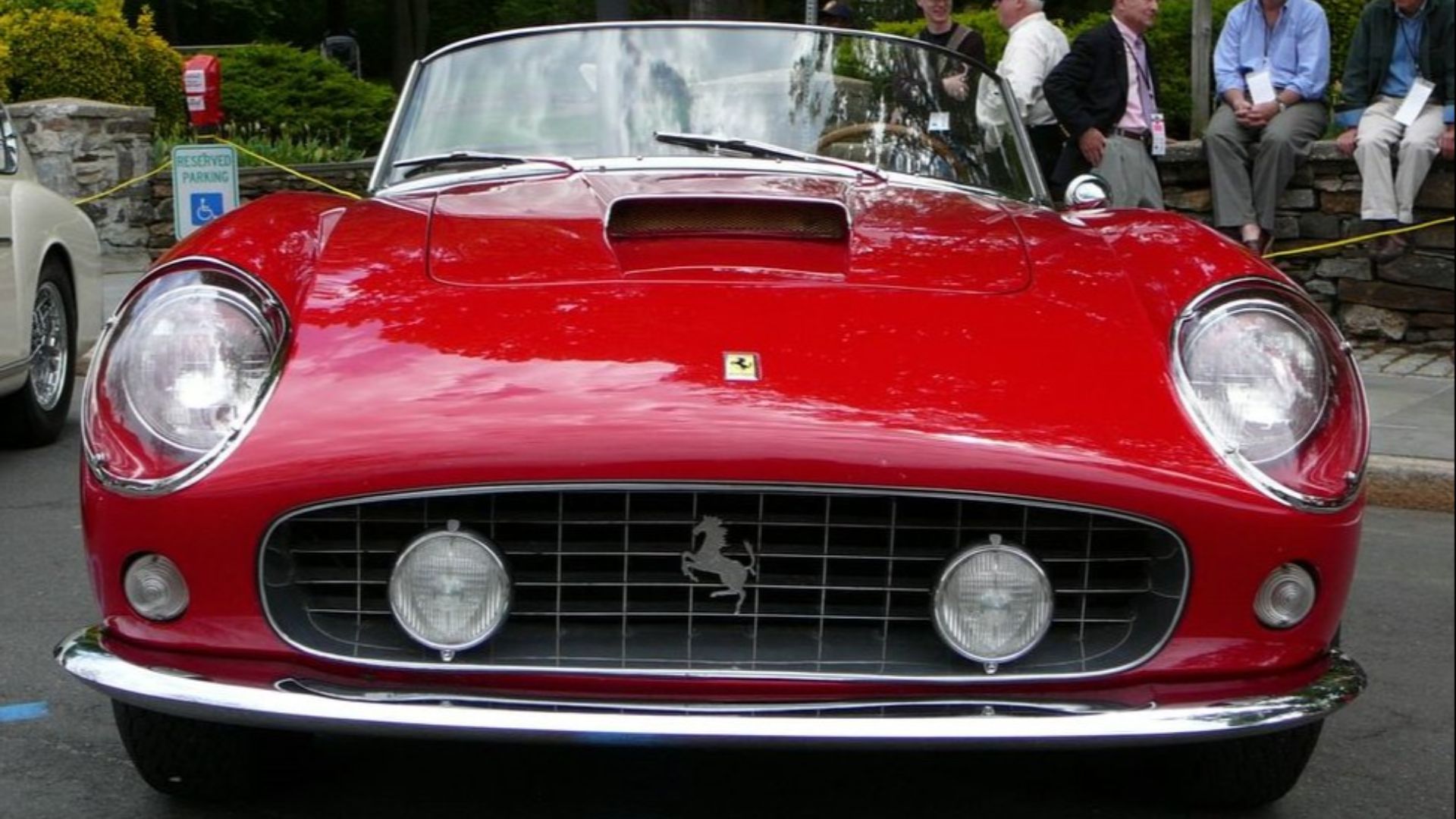 Brett Weinstein, Wikimedia Commons
Brett Weinstein, Wikimedia Commons
Enzo Ferrari’s Reluctance To Embrace A Convertible Sports Car
At first, Enzo Ferrari was reluctant to produce the California model since the popular 250 GT Cabriolet Pinin Farina was already part of the lineup. In an interview, Chinetti explained that in Italy, it was hard for the company to seriously consider a convertible as a sports car. However….
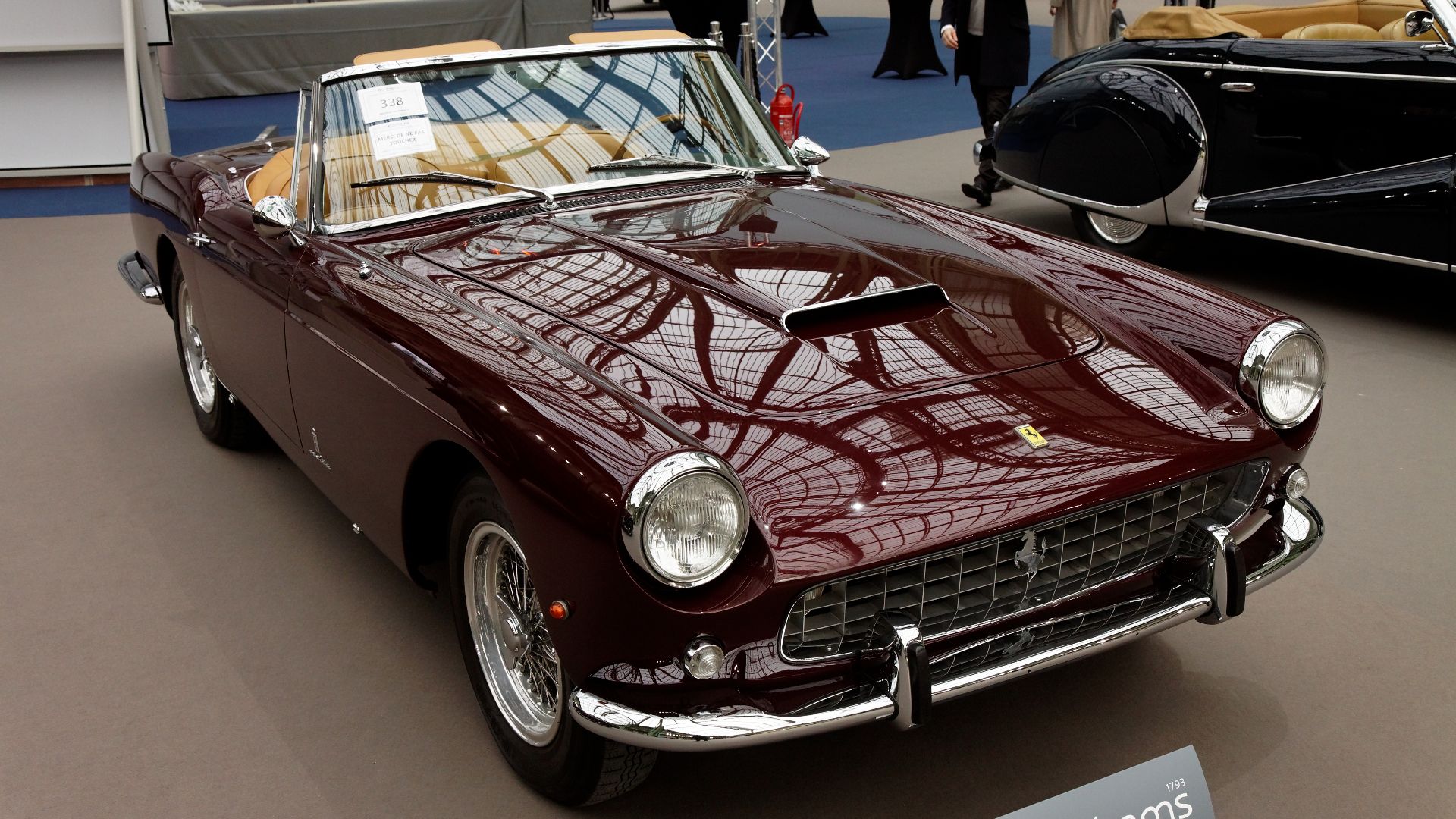 Thesupermat, Wikimedia Commons
Thesupermat, Wikimedia Commons
Enzo Ferrari’s Reluctance To Embrace A Convertible Sports Car (Cont.)
…If he had refused Chinetti and Neumann's proposal, they likely would have converted the 250 GT Berlinetta "Tour de France" or SWB into a spider with Carrozzeria Scaglietti's help—a method they later used in 1967 for some Ferrari 275 GTB/4 models.
It Became A Race-Ready Convertible For California Buyers
As its name suggests, the 250 GT California Spyder was designed to attract American buyers, especially in California. It blended race car performance with custom features, keeping interest in the model strong over the years. The prototype debuted in 1957, with series production starting in the second quarter of 1958.
Then, It Transitioned To A Shorter Wheelbase
At the 1960 Geneva International Motor Show, the 250 GT California Spyder shifted from the long chassis of the Ferrari 250 GT Berlinetta "Tour de France," which had a 2.60-meter wheelbase, to a shorter chassis version with a 2.40-meter wheelbase.
Sleek Lines And Signature Details
The California’s design, recognized for its impact on automotive styling, was created by Sergio Scaglietti. Visually, it closely resembles the elegant Ferrari 250 GT Cabriolet Pinin Farina Series I, produced in the same year, but the California Spyder features a slimmer profile.
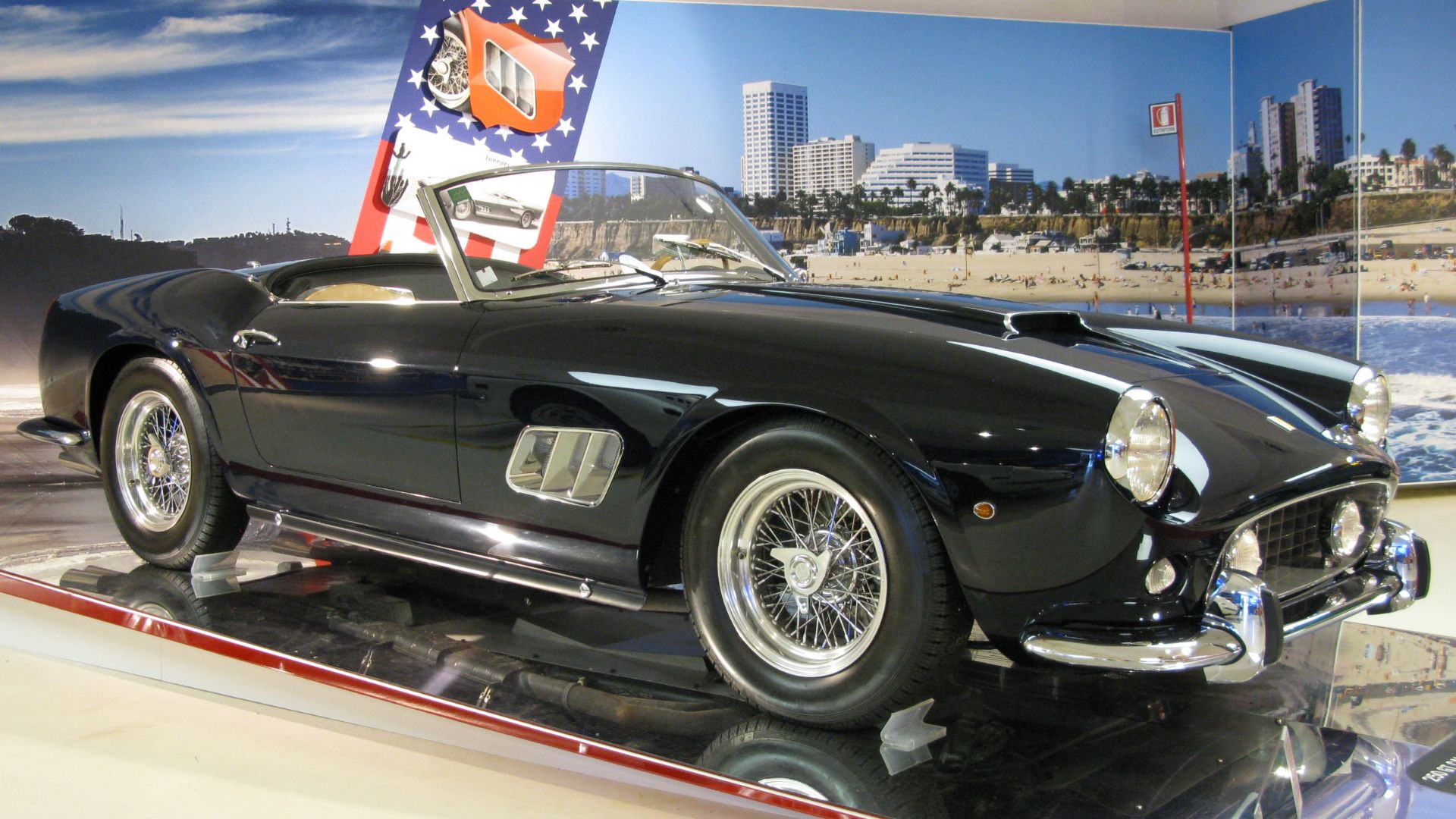 Herranderssvensson, Wikimedia Commons
Herranderssvensson, Wikimedia Commons
Sleek Lines And Signature Details (Cont.)
Its smooth body lines flow from the front lights to the curves of the wings, enhanced by a bold "shark mouth" grille. Based on the Berlinetta, the California Spyder preserves many of its design elements, including the signature "hip recess" in front of the rear wheels.
A Steeper Windshield And Shorter Chassis For A Sportier Look
Its windshield has a steeper slope, adapting to its convertible design. In 1960, the switch to the short chassis from the 250 GT Berlinetta SWB gave California a more compact shape, which accentuated its muscular silhouette.
SWB Vs LWB
The two versions of the California (SWB and LWB) can be identified by the design of the air intake on the hood, which provides airflow to the carburetors; the SWB version has a partially recessed intake.
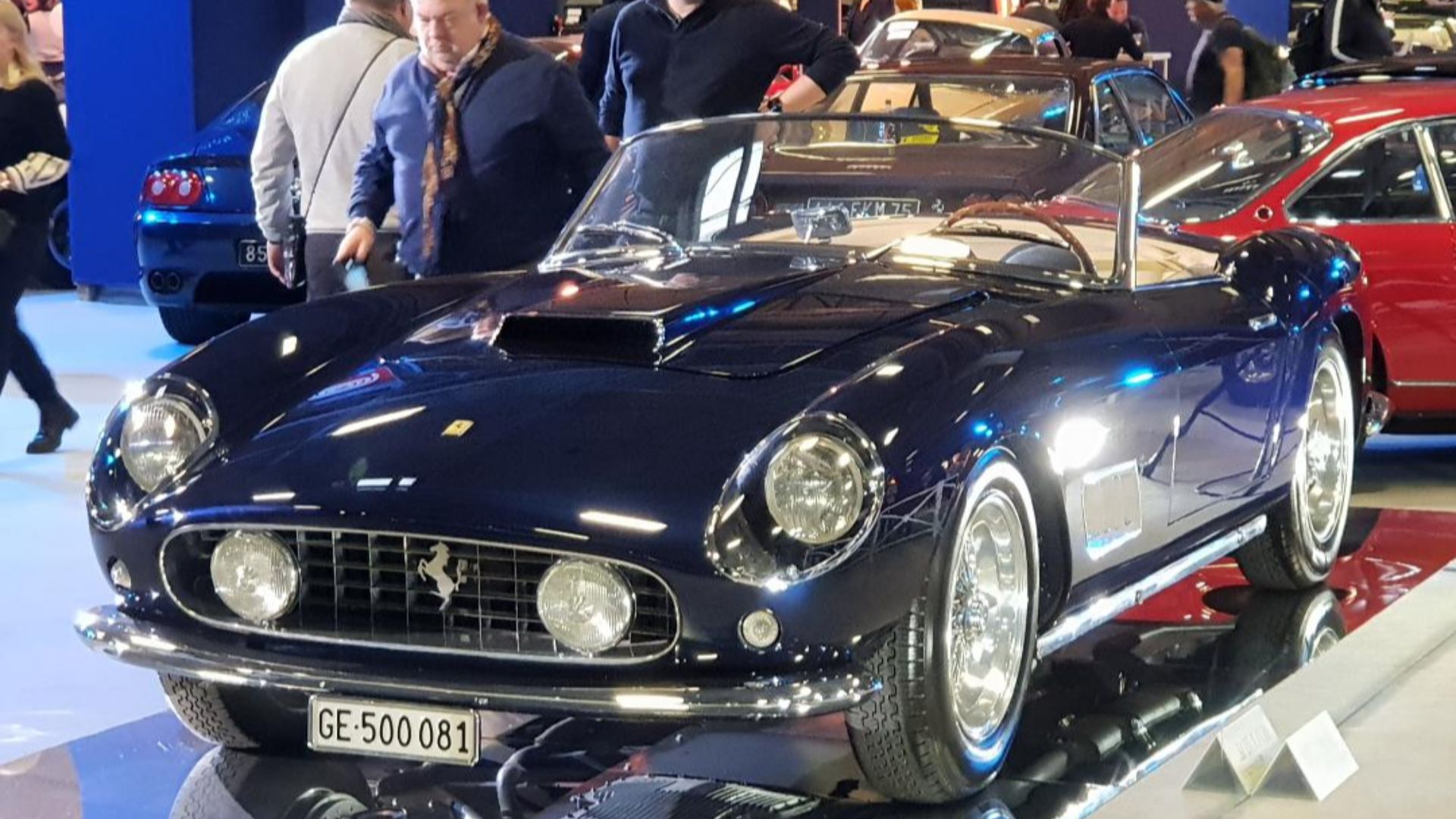 Andrew Bone from Weymouth, England, Wikimedia Commons
Andrew Bone from Weymouth, England, Wikimedia Commons
Handcrafted By Scaglietti
The 250 GT California Spyder was handcrafted by Carrozzeria Scaglietti at its workshop in Modena, a typical approach for most Ferrari race models of that time. Moreover, Pinin Farina was responsible for the car’s design.
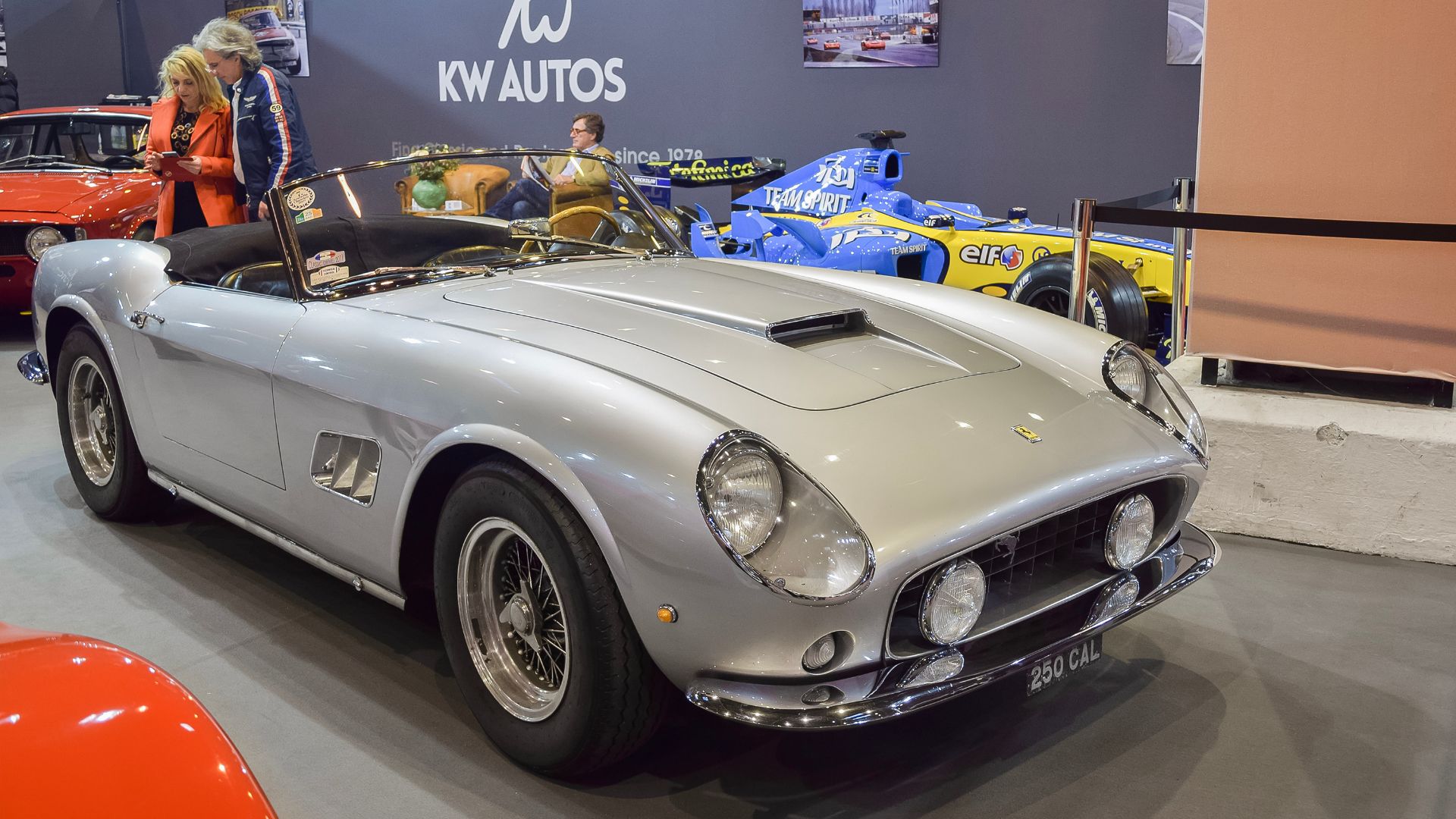 Alexandre Prevot from Nancy, France, Wikimedia Commons
Alexandre Prevot from Nancy, France, Wikimedia Commons
Marchal Headlights And Unique Design Choices
Unlike the Pinin Farina Cabriolet, Scaglietti opted for Marchal headlights enclosed in plexiglass, with fog lights integrated into the grille. Buyers of the California Spyder could choose projecting headlights, but Italian regulations required non-fairing headlights. Additionally, Scaglietti did not provide a specific space for a license plate.
A Minimalist Interior Focused On Functionality
The interior of the 250 GT California Spyder, though finished similarly to the 250 GT Cabriolet Pinin Farina I, features a minimalist design that emphasizes functionality over luxury. It gave it a simpler and more practical look.
Classic Instrumentation
The dashboard has seven circular dials, and this included the tachometer and rev counter, which displayed engine data. In the LWB version, they sit behind a three-spoke Nardi wood-and-aluminum steering wheel. In the SWB version, the dials are aligned in a straight line across the dashboard.
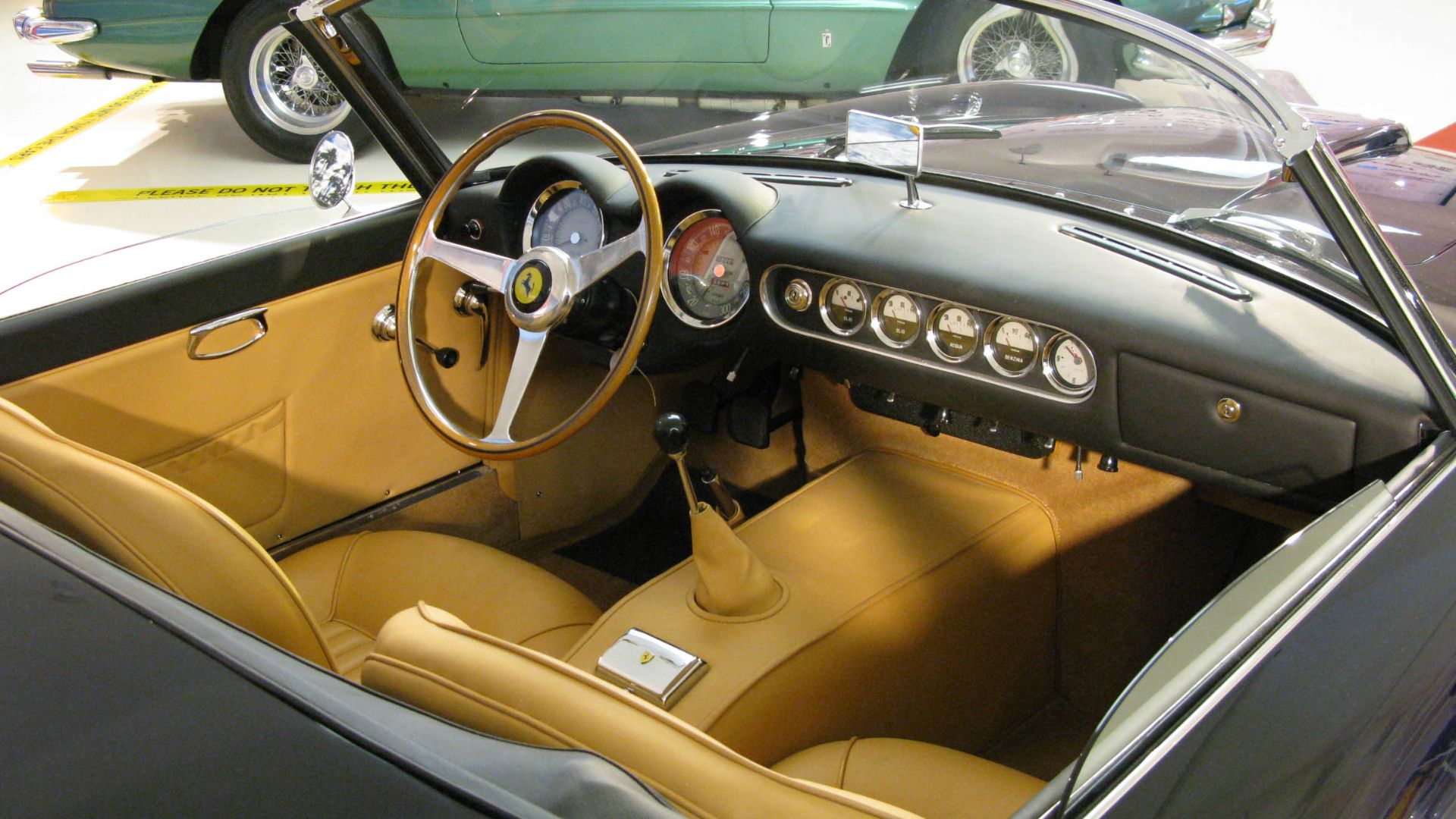 Herranderssvensson, Wikimedia Commons
Herranderssvensson, Wikimedia Commons
Shared Chassis And Precision Suspension For Peak Performance
The Ferrari 250 GT California Spyder uses the same chassis and drivetrain as the 250 GT "Tour de France". Its front suspension consists of independent double wishbones with coil springs, while the rear contains a rigid axle supported by leaf springs and guided by four push struts and link shocks.
 Talking Cars: 1961 Ferrari 250 GT SWB by Weekend Heroes
Talking Cars: 1961 Ferrari 250 GT SWB by Weekend Heroes
Improved Suspension
In 1960, the front suspension was significantly upgraded, swapping the Houdaille torsion bars for modern telescopic shock absorbers. The chassis also evolved in tandem with the "Tour de France" Berlinetta, and by May, it adopted the major wheelbase revision on the Berlinetta SWB—shortening it to 2,400 mm for agility.
 Talking Cars: 1961 Ferrari 250 GT SWB by Weekend Heroes
Talking Cars: 1961 Ferrari 250 GT SWB by Weekend Heroes
Steel Body, Aluminum Doors & 1959 Disc Brake Upgrade
The tubular chassis supports a body mainly made of steel with aluminum doors. This design made the car about 100 kilograms heavier than the Berlinetta due to the additional structural reinforcement required for the convertible.
Steel Body, Aluminum Doors & 1959 Disc Brake Upgrade (Cont.)
While its weight is slightly over one ton, exact figures may vary by source. Initially, the car used drum brakes, but in October 1959, the 250 GT California Spyder was upgraded to Dunlop disc brakes.
Powered By Colombo’s Legendary V12 Engine
The Ferrari 250 GT California Spyder is equipped with the classic Ferrari "Colombo" V12 engine (Type 168), made from lightweight alloy and featuring dual overhead camshafts with two valves per cylinder. Named after its designer, Gioacchino Colombo, this engine has been used throughout the entire 250 series since 1952.
2.95L V12 With Upgraded Weber Carburetors
Set at a 60-degree angle, the engine had a displacement of 2,953 cm³ with a bore and stroke of 73 mm × 58.8 mm. It featured three Weber dual-barrel carburetors, which were initially 36 millimeters in size but increased to 42 millimeters from 1960 onward.
 The Story of the V12 that started everything for Ferrari Colombo by Chris VS Cars
The Story of the V12 that started everything for Ferrari Colombo by Chris VS Cars
Enhanced Performance In The SWB Version
The engine initially generated 240 hp at 7,000 rpm in the LWB version but was later upgraded to 280 hp in the SWB version, thanks to new cylinder heads and larger valves. It is coupled with a 4-speed gearbox, recognized for its smooth operation, availability, and reliability.
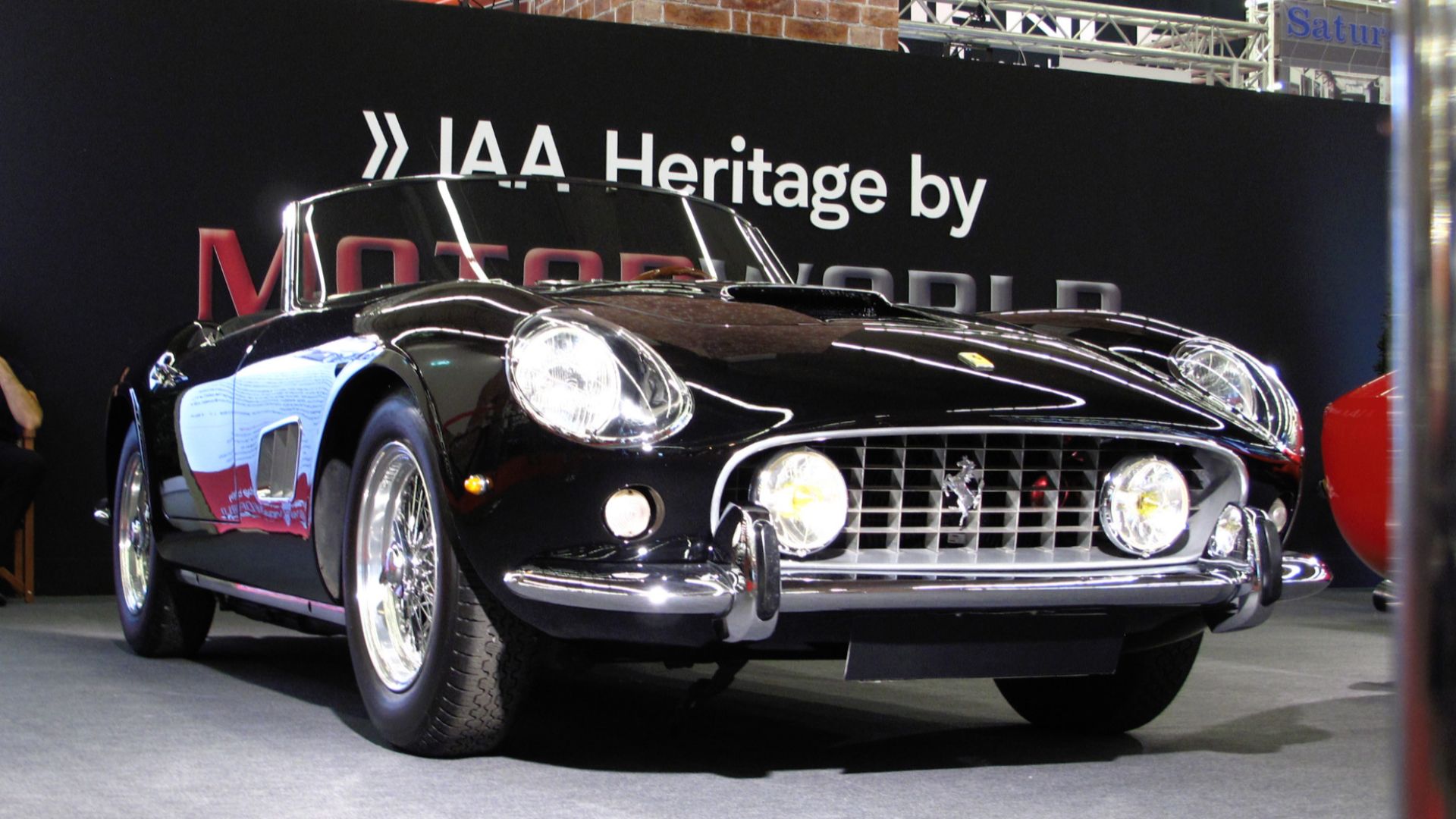 Rutger van der Maar, Wikimedia Commons
Rutger van der Maar, Wikimedia Commons
Improved Maintenance & Enhanced Ventilation
In 1960, the spark plugs were moved outside the V configuration to make maintenance easier. An overdrive was also added to the gearbox. The front air intake was usually complemented by two side vents with three polished aluminum slots behind the front wheels to aid engine ventilation.
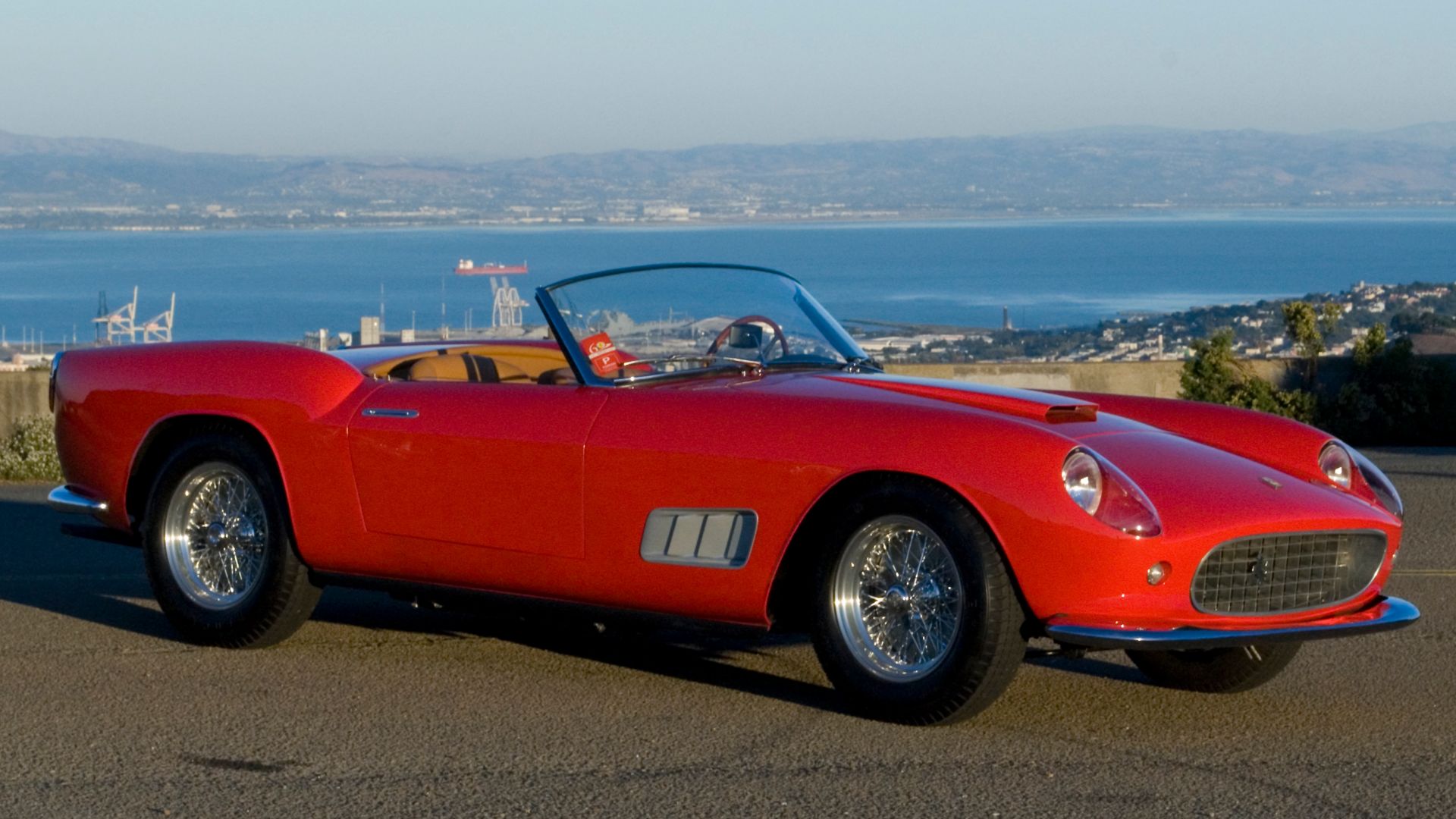 Daniel J. Leivick, Wikimedia Commons
Daniel J. Leivick, Wikimedia Commons
Racing Success
Although the Ferrari 250 GT California Spyder was not specifically built for racing, many models competed in endurance events. It won the 12 Hours of Sebring in 1959 with Richie Ginther and Howard Hively and again in 1960 with Giorgio Scarlatti, Fabrizio Serena, and Carlo Abate.
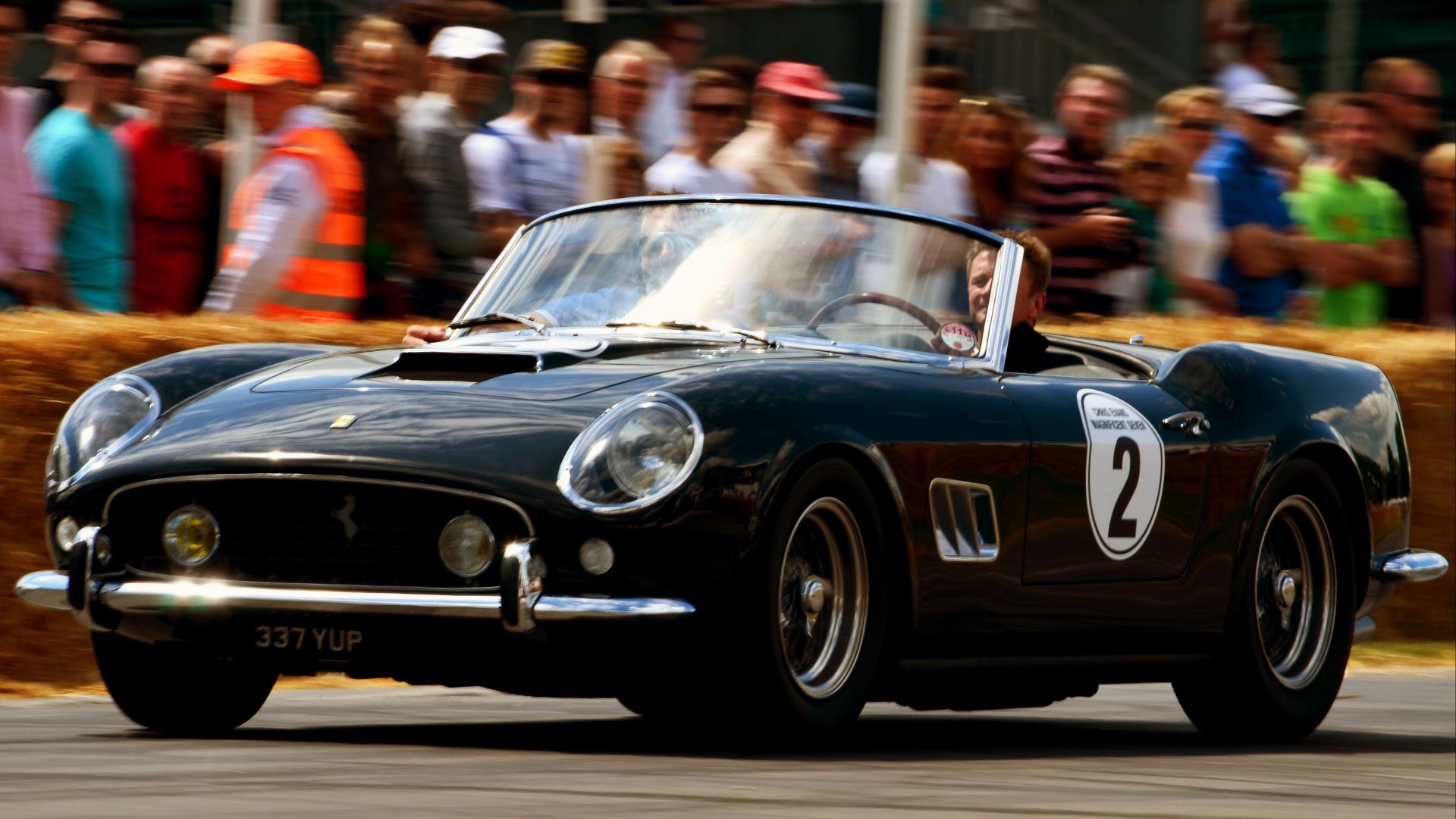 Nic Redhead from Birmingham, UK, Wikimedia Commons
Nic Redhead from Birmingham, UK, Wikimedia Commons
Racing Success (Cont.)
Additionally, a California Spyder from the North American Racing Team, driven by Bob Grossman and Fernand Tavano, finished fifth in the 1959 24 Hours of Le Mans. Some California Spyders were also fitted with the engine from the "Competizione" Berlinettas, the sportier versions of the series.
Beauty, Rarity & Record-Breaking Value
It is regarded as one of the most visually stunning Ferrari models and convertibles in automotive history. It is also among the most valuable cars. On May 18, 2008, Chris Evans bought James Coburn’s model for a record €7,040,000 (nearly $7,640,477) at a Sotheby’s auction.
 Driving a Ferrari 250 GT California Spyder in the Hills of San Francisco. by citoscamera
Driving a Ferrari 250 GT California Spyder in the Hills of San Francisco. by citoscamera
A Star’s Legacy
On February 6, 2015, a short chassis version of the 250 GT California, once owned by Roger Baillon and forgotten for nearly 30 years, was sold at the Artcurial auction during the Retromobile show for €14,200,000 ($15,413,461), excluding fees.
A Star’s Legacy (Cont.)
This car had a remarkable history, having been owned by several French movie stars, including Alain Delon, and was found under a pile of newspapers alongside a Maserati A6G GranSport. Sporty convertibles like the 250 GT California Spyder remain a key part of Ferrari's lineup.
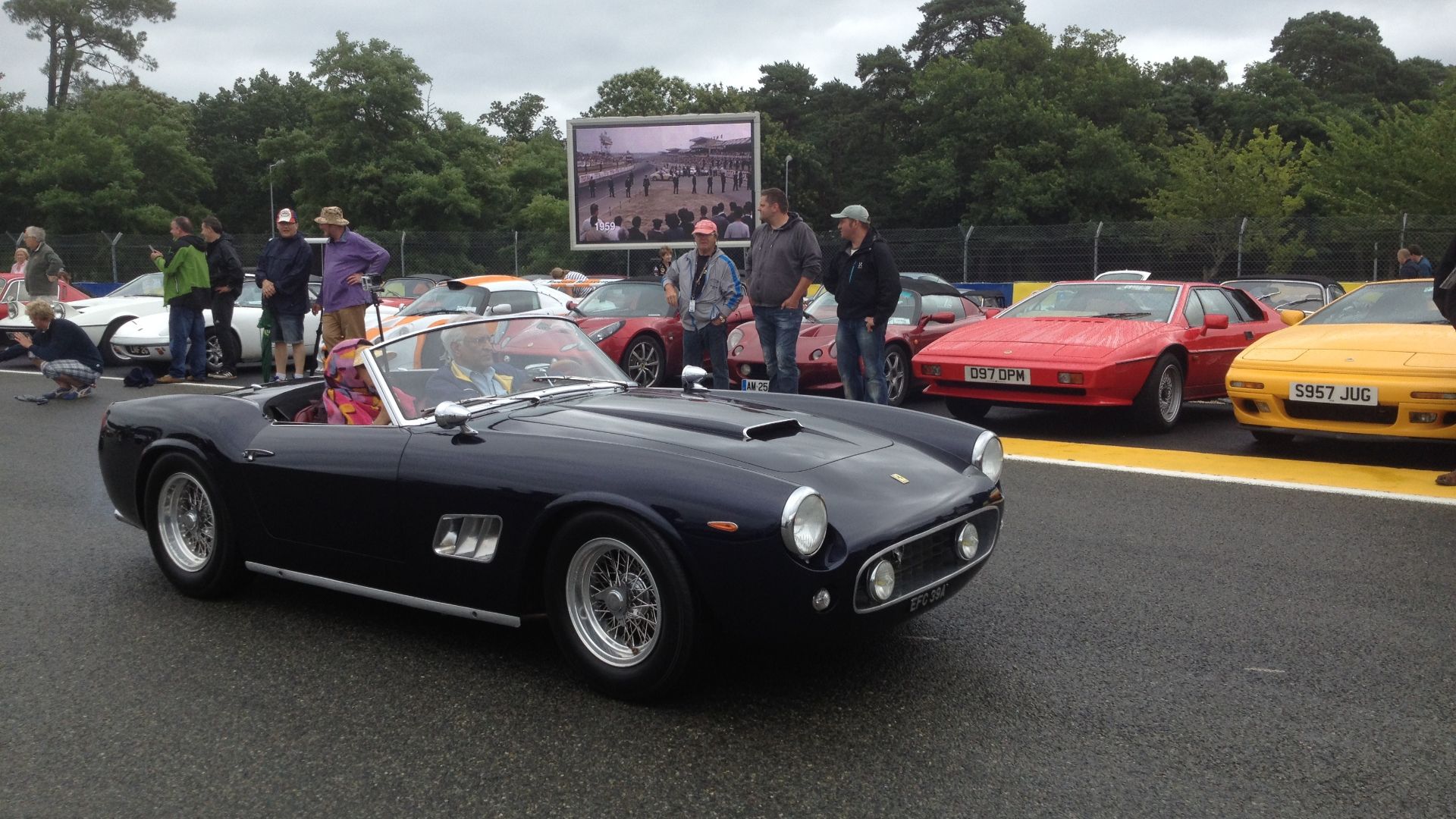 fklv (Obsolete hipster) from near le Mans, France, Wikimedia Commons
fklv (Obsolete hipster) from near le Mans, France, Wikimedia Commons
James Coburn’s Ferrari
American film actor James Coburn owned the 1961 Ferrari 250 GT SWB California Spyder model for 25 years. He had it repainted three times—dark blue, silver, and burgundy—and could often be spotted driving it in the Hollywood Hills with his friends James Garner and Steve McQueen.
A Hollywood Treasure And Concours Star
Coburn bought the car from the popular Garage Francorchamps just minutes after seeing it for the first time and cherished it for 25 years. He eventually sold it in 1986 as his health began to decline.
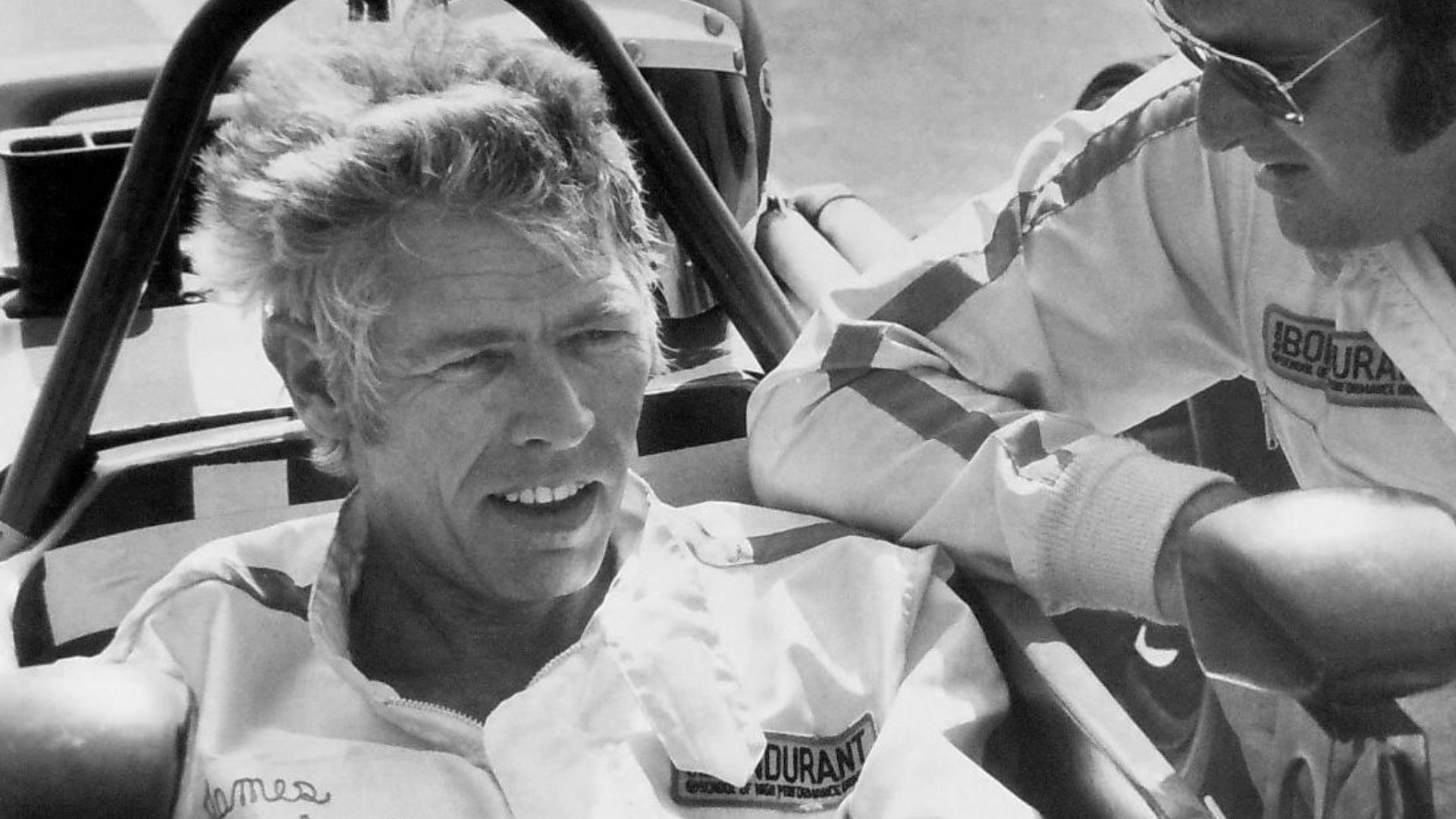 ABC Television, Wikimedia Commons
ABC Television, Wikimedia Commons
A Hollywood Treasure And Concours Star (Cont.)
The car was later displayed by its new owner, Andrew Cohen of Beverly Hills, at the prestigious Pebble Beach Concours on August 23, 1992, where it earned third in its class. It was sold to Bruce S Lustman of Southport, CT, in early 1994.
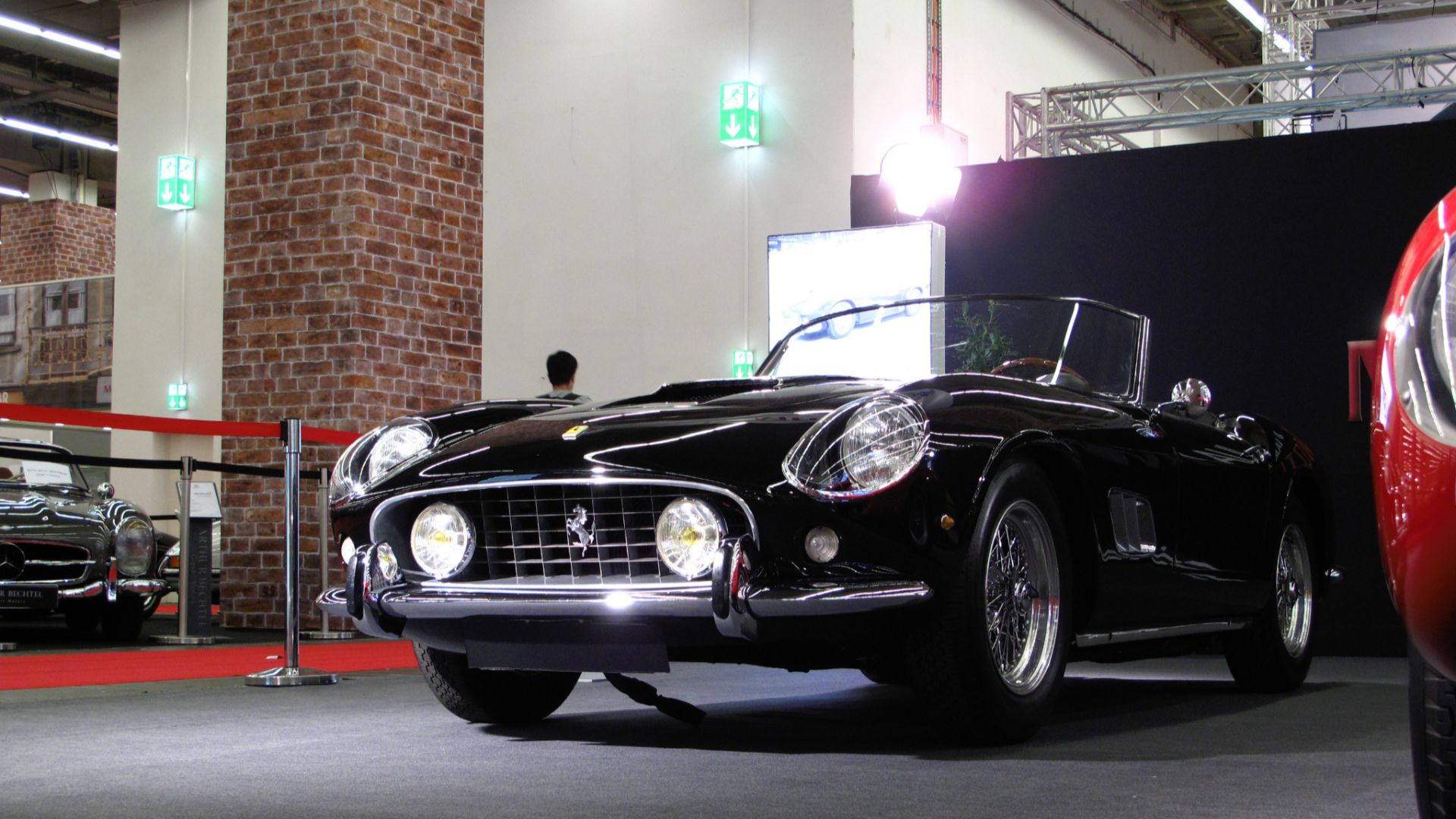 Rutger van der Maar, Wikimedia Commons
Rutger van der Maar, Wikimedia Commons
Lustman’s Ferrari Legacy Showcased At Prestigious Events
Lustman and his wife Sandy prominently showcased the Ferrari 250 GT California Spyder throughout their first year of ownership, exhibiting the car at the 1994 Cavallino Classic, the 1994 International Ferrari Concours in Monterey, and the 1994 Concorso Italiano at The Quail.
 Ferrari California Spyder by GTO Engineering | Carfection 4K by Carfection
Ferrari California Spyder by GTO Engineering | Carfection 4K by Carfection
Lustman’s Ferrari Legacy Showcased At Prestigious Events (Cont.)
The couple also enjoyed the car's remarkable performance by participating annually in the Colorado Grand for many years, alongside competing in several other prestigious automotive events. Their involvement with these elite gatherings further highlighted their appreciation for the Ferrari’s legacy.
 Ferrari California Spyder by GTO Engineering | Carfection 4K by Carfection
Ferrari California Spyder by GTO Engineering | Carfection 4K by Carfection
Michael Ballack’s Iconic Ferrari 250 GT SWB California Spider
The 250 GT California Spyder has been owned by numerous other famous personalities as well. Former German footballer Michael Ballack owned the very first Ferrari 250 GT SWB California Spider model, a rare gem first shown at the 1960 Geneva Motor Show.
Made Famous By Films
The model became more popular after appearing in the 1986 film Ferris Bueller's Day Off. In the movie, Cameron Frye's father’s cherished 1961 Ferrari 250 GT California Spyder plays a key role in the story and is ultimately destroyed in a memorable scene.
 FERRIS BUELLER'S DAY OFF | Official Trailer | Paramount Movies by Paramount Movies
FERRIS BUELLER'S DAY OFF | Official Trailer | Paramount Movies by Paramount Movies
The Replica That Stole The Spotlight
Writer and director John Hughes initially intended to use a Mercedes for the film but changed his mind after spotting a replica of the 1961 Ferrari 250 GT in a magazine. This replica, called the GT Spyder California, was developed by Neil Glassmoyer and Mark Goyette at Modena Design & Development.
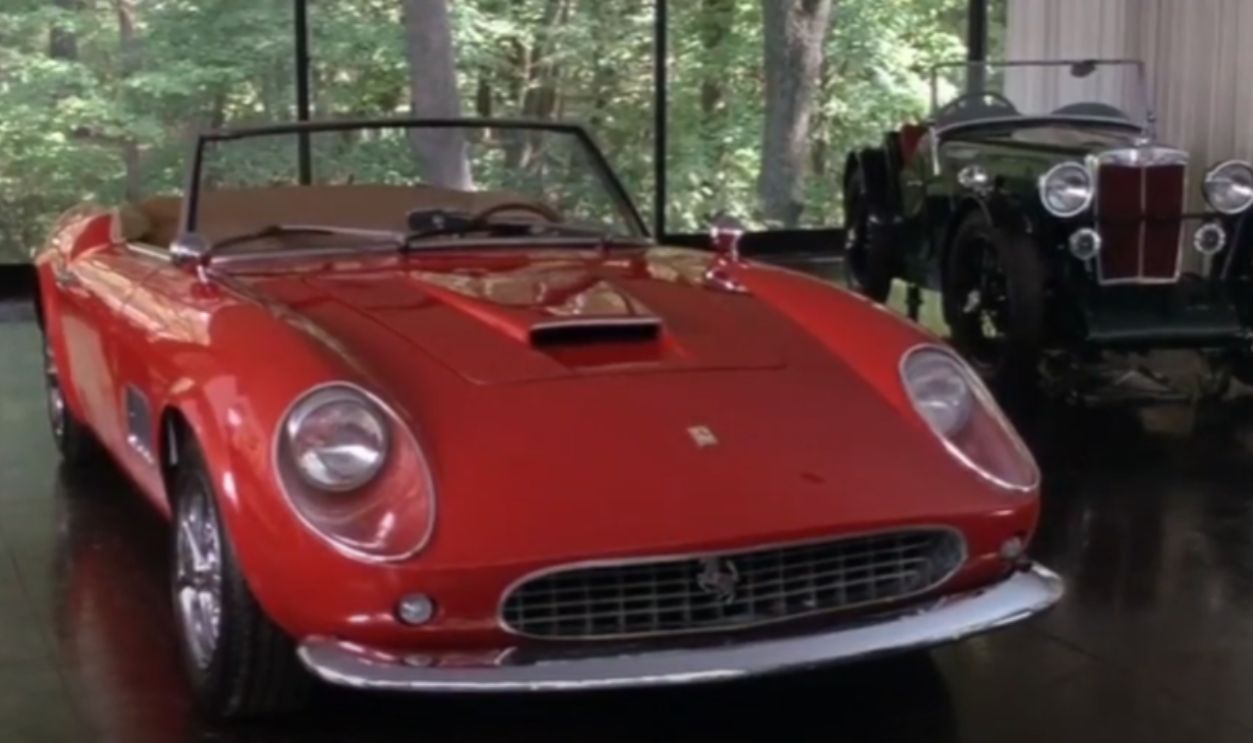 Ferris borrows the Ferrari: Ferris Bueller's Day Off (1986) by Film Studies Fundamentals
Ferris borrows the Ferrari: Ferris Bueller's Day Off (1986) by Film Studies Fundamentals
Too Rare To Crash
There’s a good reason the studio used replicas of the 1961 Ferrari 250 GT California—only 56 of them were ever built. Destroying such a rare and priceless piece of automotive history wouldn’t just have cost millions of dollars; it would have also outraged Ferrari and car enthusiasts worldwide.
A Wrecked Replica Restored
If you’ve seen the movie, you probably remember the scene. With the theme of Star Wars playing in the background, the valets speed down Greenview Street and send the prized Ferrari airborne. This “jump scene” caused major damage to the replica. However, it resurfaced years later and was fully restored.
 Ferrari Valet Scene From Ferris Bueller's Day Off by Found Video
Ferrari Valet Scene From Ferris Bueller's Day Off by Found Video
Eddie Munster’s Ferrari in Munster, Go Home!
A Ferrari 250 GT California Spyder was featured in the 1966 movie Munster, Go Home! In the film, Eddie Munster, the son of the Munster family, is seen driving the gorgeous Ferrari, instantly capturing the attention of car enthusiasts.
 Munster, Go Home! (1966) - Official Trailer by ScreamFactoryTV
Munster, Go Home! (1966) - Official Trailer by ScreamFactoryTV
A Ford-Powered Ferrari Replica
The GT Spyder was equipped with a 1974 302 cubic-inch Ford V8 engine and a C-4 automatic transmission. Rumor has it that Glassmoyer and Goyette chose an automatic because Matthew Broderick didn’t know how to drive a manual.
 FERRIS BUELLER'S DAY OFF | Ferrari Clip | Paramount Movies by Paramount Movies
FERRIS BUELLER'S DAY OFF | Ferrari Clip | Paramount Movies by Paramount Movies
A Ford-Powered Ferrari Replica (Cont.)
The front-engine, rear-wheel-drive sports car was designed by Bob Webb and featured a fiberglass convertible shell mounted on a custom tube frame built by David Turley. If Bob Webb’s name sounds familiar, it’s because he also worked on the Zerex Special, driven by Roger Penske and Bruce McLaren.
A Hollywood-Built Ferrari Replica With Mustang DNA
The drivable replica was built to perform like a high-end sports car, with parts sourced from various vehicles to closely mimic a real Ferrari. It had torsion bar suspension at both the front and rear, with Ford Mustang A-arms in the front and a solid rear axle from a Mustang.
 FERRIS BUELLER'S DAY OFF | Official Trailer | Paramount Movies by Paramount Movies
FERRIS BUELLER'S DAY OFF | Official Trailer | Paramount Movies by Paramount Movies
The Lawsuit That Shut Modena Design Down
To make the replicas look authentic, Modena Design added Ferrari badges—but without obtaining permission from the automaker. Given Ferrari’s strict control over its branding, it wasn’t surprising that the company quickly sued Modena Design for trademark infringement. The costly legal battle forced Glassmoyer and Goyette out of business.
 FERRIS BUELLER'S DAY OFF | Ferrari Clip | Paramount Movies by Paramount Movies
FERRIS BUELLER'S DAY OFF | Ferrari Clip | Paramount Movies by Paramount Movies
The Enduring Fame Of Ferris’s Ferrari
The Ferris Bueller “Ferrari” has gained a cult following in the decades since the movie’s release. It remains one of the most recognizable cars in the world, with even the replicas fetching hundreds of thousands of dollars at auction.
 10 Surprising Facts About Ferris's '61 Ferrari 250 GT - Ferris Bueller's Day Off by CarStarz
10 Surprising Facts About Ferris's '61 Ferrari 250 GT - Ferris Bueller's Day Off by CarStarz


